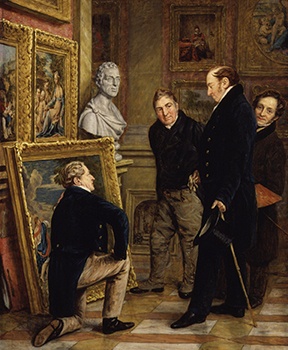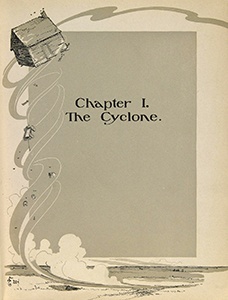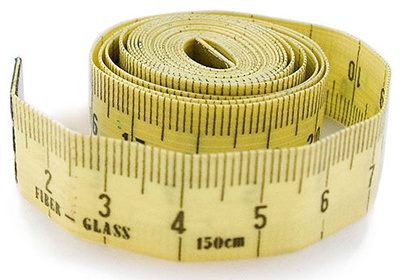Top 20 Errors in Undergraduate Writing
Main navigation.
The Top Twenty: A Quick Guide to Troubleshooting Your Writing
Readers judge your writing by your control of certain conventions, which may change depending on your audience, purpose, and writing situation. For example, your instructor may or may not mark errors in your paper if he’s more concerned with its argument or structure than he is with sentence-level correctness; he could also decide an error is not serious. Some instructors may even see the errors listed below as stylistic options. However, a large-scale study by Andrea Lunsford and Karen Lunsford (2008) found that these errors are the most likely to attract readers’ negative attention. Before handing in your papers, proofread them carefully for these errors, which are illustrated below in the sentences in italics.

THE TOP TWENTY
1. wrong word.
Wrong word errors take a number of forms. They may convey a slightly different meaning than you intend ( compose instead of comprise ) or a completely wrong meaning ( prevaricate instead of procrastinate ). They may also be as simple as a wrong preposition or other type of wrong word in an idiom.
Use your thesaurus and spell checker with care. If you select a word from a thesaurus without knowing its precise meaning or allow a spell checker to correct spelling automatically, you may make wrong-word errors. If prepositions and idioms are tricky for you, look up the standard usage.
Here are a couple of wrong word examples:
Did you catch my illusion to the Bible?
Illusion means “an erroneous perception of reality.” In the context of this sentence, allusion was needed because it means "reference.”
Edmund Spenser’s The Faerie Queene is a magnificent sixteenth-century allergy.
A spell checker replaced allegory with allergy.
2. Missing Comma after an Introductory Element
Use a comma after every introductory element—whether word, phrase or clause—to clarify where it ends and the rest of the sentence begins. When the introductory element is very short, you can skip the comma, but including it is never wrong.
Without a comma after the introductory element, it’s hard to see the location of the subject (“they”) in this sentence:
Determined to make their flight on time they rose at dawn.
3. Incomplete or Missing Documentation
Documentation practices vary from discipline to discipline. But in academic and research writing, it’s a good idea to always cite your sources: omitting documentation can result in charges of plagiarism.
The examples below follow MLA style. In this example, the page number of the print source for this quotation must be included.
The Social Media Bible defines social media as the “activities, practices, and behaviors among communities of people who gather online to share information, knowledge, and opinions using conversational media.”
And here, the source mentioned should be identified because it makes a specific, arguable claim:
According to one source, it costs almost twice an employee’s salary to recruit and train a replacement.
Cite each source you refer to in the text, following the guidelines of the documentation style you are using.
4. Vague Pronoun Reference
A pronoun (e.g., he, this, it) should refer clearly to the noun it replaces (called the antecedent). If more than one word could be the antecedent, or if no specific antecedent is present, edit to make the meaning clear.
In this sentence, it possibly refers to more than one word:
If you put this handout in your binder, it may remind you of important tutoring strategies .
In some pronoun usage, the reference is implied but not stated. Here, for example, you might wonder what which refers to:
The authoritarian school changed its cell phone policy, which many students resisted.
To improve this sentence, the writer needs to make explicit what students resisted.
5. Spelling
Even though technology now reviews much of our spelling for us, one of the top 20 most common errors is a spelling error. That’s because spell checkers cannot identify many misspellings, and are most likely to miss homonyms (e.g., presence/presents), compound words incorrectly spelled as separate words, and proper nouns, particularly names. After you run the spell checker, proofread carefully for errors such as these:
Vladmir Putin is the controversial leader of Russia.
Every where she walked, she was reminded of him.
6. Mechanical Error with a Quotation
When we quote other writers, we bring their voices into our arguments. Quotation marks crucially show where their words end and our own begin.
Quotation marks come in pairs; don’t forget to open and close your quotations. In most documentation styles (e.g., MLA Style), block quotations do not need quotations marks. Consult your professor’s preferred style manual to learn how to present block quotations.
Follow conventions when using quotation marks with other punctuation. Here, the comma should be placed inside the quotation marks:
"A woman must have money and a room of her own if she is to write fiction", Virginia Woolf argues.
7. Unnecessary Comma
We often have a choice about whether or not to use a comma. But if we add them to our sentences when and where they are not needed, then we may obscure rather than clarify our meaning.
Do not use commas to set off restrictive elements that are necessary to the meaning of the words they modify. Here, for example, no comma is needed to set off the restrictive phrase of working parents , which is necessary to indicate which parents the sentence is talking about.
Many children, of working parents, walk home from school by themselves.
Do not use a comma before a coordinating conjunction (and, but, for, nor, or, so, yet) when the conjunction does not join parts of a compound sentence. In this example, no comma is needed before the word and because it joins two phrases that modify the same verb, applies.
This social scourge can be seen in urban centers, and in rural outposts.
Do not use a comma before the first or after the last item in a series.
The students asked their TAs to review, the assignment rubric, a sample paper and their comments, before the end of the quarter.
Do not use a comma between a subject and verb.
Happily, the waiters, sat down during a break.
Do not use a comma between a verb and its object or complement.
On her way home from work, she bought, a book at the bookstore.
Do not use a comma between a preposition and its object.
On her way home from work, she bought a book at, the bookstore.
8. Unnecessary or Missing Capitalization
Capitalize proper nouns and proper adjectives, the first words of sentences, and important words in titles, along with certain words indicating directions and family relationships. Do not capitalize most other words. When in doubt, check a dictionary.
Financial Aid is a pressing concern for many University Students.
9. Missing Word
If you read your work outloud before submittingit, you are more likely to notice omitted words. Be particularly careful not to omit words from quotations.
Soccer fans the globe rejoiced when the striker scored the second goal.
10. Faulty Sentence Structure
If a sentence starts out with one kind of structure and then changes to another kind, it will confuse readers.
The information that families have access to is what financial aid is available and thinking about the classes available, and how to register.
Maintain the grammatical pattern within a sentence. Each sentence must have a subject and a verb, and the subjects and predicates must make sense together. In the example above, thinking about the classes available does not help the reader understand the information families have access to. Parallel structures can help your reader see the relationships among your ideas. Here’s the sentence revised:
Families have access to information about financial aid, class availability, and registration.
11. Missing Comma with a Nonrestrictive Element
A nonrestrictive phrase or clause provides additional information that is not essential to the basic meaning of the sentence. Use commas to set off a nonrestrictive element.
David who loved to read history was the first to head to the British Library.
The clause who loved to read history does not affect the basic meaning of the sentence. The clause could be taken out and the reader would still understand that David was the first to head to the British Library.
12. Unnecessary Shift in Verb Tense
Verbs that shift from one tense to another with no clear reason can confuse readers.
Martin searched for a great horned owl. He takes photographs of all the birds he sights.
13. Missing Comma in a Compound Sentence
A compound sentence consists of two or more independent clauses. When the clauses are joined by a coordinating conjunction (for, and, nor, but, or, yet, so), use a comma before the conjunction to indicate a pause between the two thoughts.
Miranda drove her brother and her mother waited at home.
Without the comma, a reader may think at first that Miranda drove both her brother and her mother.
14. Unnecessary or Missing Apostrophe (including its/it's)
To make a noun possessive, add either an apostrophe and an s (Ed's phone) or an apostrophe alone (the girls’ bathroom). Do not use an apostrophe in the possessive pronouns ours, yours, and hers. Use its to mean belong to it; use it's only when you mean it is or it has.
Repeated viral infections compromise doctors immune systems.
The chef lifted the skillet off it’s hook. Its a fourteen-inch, copper skillet.
15. Fused (run-on) Sentence
A fused sentence (also called a run-on) joins clauses that could each stand alone as a sentence with no punctuation or words to link them. Fused sentences must be either divided into separate sentences or joined by adding words or punctuation.
The house was flooded with light, the moon rose above the horizon.
He wondered what the decision meant he thought about it all night.
16. Comma Splice
A comma splice occurs when only a comma separates clauses that could each stand alone as a sentence. To correct a comma splice, you can insert a semicolon or period, connect the clauses with a word such as and/or/because, or restructure the sentence.
The students rushed the field, they tore down the goalposts.
17. Lack of pronoun/antecedent agreement
Pronouns typically must agree with their antecedents in gender (male or female, if appropriate) and in number (singular or plural). Many indefinite pronouns, such as everyone and each, are always singular. However, they can be used to agree with a singular antecedent in order to use inclusive or gender-neutral language. When antecedents are joined by or or nor, the pronoun must agree with the closer antecedent. A collection noun such as team can be either singular or plural, depending on whether the members are seen as a group or individuals.
Every guest left their shoes at the door.
18. Poorly Integrated Quotation
Quotations should be logically and smoothly integrated with the writing around them, the grammar of the quotation complementing the grammar of the neighboring prose. They usually need to be introduced (with a signal phrase) rather than dropped abruptly into the writing.
An award-winning 2009 study of friendship "understanding social networks allows us to understand how indeed, in the case of humans, the whole comes to be greater than the sum of its parts" (Christakis and Fowler 26).
"Social networks are intricate things of beauty" (Christakis and Fowler xiii). Maintaining close friendships is good for your health.
19. Missing or Unnecessary Hyphen
A compound adjective requires a hyphen when it modifies a noun that follows it.
This article describes eighteenth century theater.
A two-word verb should not be hyphenated.
The dealers want to buy-back the computers and refurbish them.
20. Sentence Fragment
A sentence fragment is part of a sentence that is presented as if it were a complete sentence. The following illustrate the ways sentence fragments can be created:
Without a subject
The American colonists resisted British taxation. And started the American Revolution.
No complete verb
The pink geranium blooming in its pot.
Beginning with a subordinating word
We visited the park. Where we threw the Frisbee.
These 20 most common errors can be avoided in your writing if you reserve time to proofread your final draft before submission.
Works Cited
Lunsford, Andrea A. and Karen J. Lunsford. “Mistakes are a Fact of Life: A National Comparative Study.” CCC 59 (2008) 781-806.

Choose Your Test
Sat / act prep online guides and tips, bad college essays: 10 mistakes you must avoid.
College Essays

Just as there are noteworthy examples of excellent college essays that admissions offices like to publish, so are there cringe-worthy examples of terrible college essays that end up being described by anonymous admissions officers on Reddit discussion boards.
While I won't guarantee that your essay will end up in the first category, I will say that you follow my advice in this article, your essay most assuredly won't end up in the second. How do you avoid writing a bad admissions essay? Read on to find out what makes an essay bad and to learn which college essay topics to avoid. I'll also explain how to recognize bad college essays—and what to do to if you end up creating one by accident.
What Makes Bad College Essays Bad
What exactly happens to turn a college essay terrible? Just as great personal statements combine an unexpected topic with superb execution, flawed personal statements compound problematic subject matter with poor execution.
Problems With the Topic
The primary way to screw up a college essay is to flub what the essay is about or how you've decided to discuss a particular experience. Badly chosen essay content can easily create an essay that is off-putting in one of a number of ways I'll discuss in the next section.
The essay is the place to let the admissions office of your target college get to know your personality, character, and the talents and skills that aren't on your transcript. So if you start with a terrible topic, not only will you end up with a bad essay, but you risk ruining the good impression that the rest of your application makes.
Some bad topics show admissions officers that you don't have a good sense of judgment or maturity , which is a problem since they are building a class of college students who have to be able to handle independent life on campus.
Other bad topics suggest that you are a boring person , or someone who doesn't process your experience in a colorful or lively way, which is a problem since colleges want to create a dynamic and engaged cohort of students.
Still other bad topics indicate that you're unaware of or disconnected from the outside world and focused only on yourself , which is a problem since part of the point of college is to engage with new people and new ideas, and admissions officers are looking for people who can do that.
Problems With the Execution
Sometimes, even if the experiences you discuss could be the foundation of a great personal statement, the way you've structured and put together your essay sends up warning flags. This is because the admissions essay is also a place to show the admissions team the maturity and clarity of your writing style.
One way to get this part wrong is to exhibit very faulty writing mechanics , like unclear syntax or incorrectly used punctuation. This is a problem since college-ready writing is one of the things that's expected from a high school graduate.
Another way to mess this up is to ignore prompt instructions either for creative or careless reasons. This can show admissions officers that you're either someone who simply blows off directions and instructions or someone who can't understand how to follow them . Neither is a good thing, since they are looking for people who are open to receiving new information from professors and not just deciding they know everything already.

College Essay Topics To Avoid
Want to know why you're often advised to write about something mundane and everyday for your college essay? That's because the more out-there your topic, the more likely it is to stumble into one of these trouble categories.
Too Personal
The problem with the overly personal essay topic is that revealing something very private can show that you don't really understand boundaries . And knowing where appropriate boundaries are will be key for living on your own with a bunch of people not related to you.
Unfortunately, stumbling into the TMI zone of essay topics is more common than you think. One quick test for checking your privacy-breaking level: if it's not something you'd tell a friendly stranger sitting next to you on the plane, maybe don't tell it to the admissions office.
- Describing losing your virginity, or anything about your sex life really. This doesn't mean you can't write about your sexual orientation—just leave out the actual physical act.
- Writing in too much detail about your illness, disability, any other bodily functions. Detailed meaningful discussion of what this physical condition has meant to you and your life is a great thing to write about. But stay away from body horror and graphic descriptions that are simply there for gratuitous shock value.
- Waxing poetic about your love for your significant other. Your relationship is adorable to the people currently involved in it, but those who don't know you aren't invested in this aspect of your life.
- Confessing to odd and unusual desires of the sexual or illegal variety. Your obsession with cultivating cacti is wonderful topic, while your obsession with researching explosives is a terrible one.

Too Revealing of Bad Judgment
Generally speaking, leave past illegal or immoral actions out of your essay . It's simply a bad idea to give admissions officers ammunition to dislike you.
Some exceptions might be if you did something in a very, very different mindset from the one you're in now (in the midst of escaping from danger, under severe coercion, or when you were very young, for example). Or if your essay is about explaining how you've turned over a new leaf and you have the transcript to back you up.
- Writing about committing crime as something fun or exciting. Unless it's on your permanent record, and you'd like a chance to explain how you've learned your lesson and changed, don't put this in your essay.
- Describing drug use or the experience of being drunk or high. Even if you're in a state where some recreational drugs are legal, you're a high school student. Your only exposure to mind-altering substances should be caffeine.
- Making up fictional stories about yourself as though they are true. You're unlikely to be a good enough fantasist to pull this off, and there's no reason to roll the dice on being discovered to be a liar.
- Detailing your personality flaws. Unless you have a great story of coping with one of these, leave deal-breakers like pathological narcissism out of your personal statement.

Too Overconfident
While it's great to have faith in your abilities, no one likes a relentless show-off. No matter how magnificent your accomplishments, if you decide to focus your essay on them, it's better to describe a setback or a moment of doubt rather that simply praising yourself to the skies.
- Bragging and making yourself the flawless hero of your essay. This goes double if you're writing about not particularly exciting achievements like scoring the winning goal or getting the lead in the play.
- Having no awareness of the actual scope of your accomplishments. It's lovely that you take time to help others, but volunteer-tutoring a couple of hours a week doesn't make you a saintly figure.

Too Clichéd or Boring
Remember your reader. In this case, you're trying to make yourself memorable to an admissions officer who has been reading thousands of other essays . If your essay makes the mistake of being boring or trite, it just won't register in that person's mind as anything worth paying attention to.
- Transcribing your resume into sentence form or writing about the main activity on your transcript. The application already includes your resume, or a detailed list of your various activities. Unless the prompt specifically asks you to write about your main activity, the essay needs to be about a facet of your interests and personality that doesn't come through the other parts of the application.
- Writing about sports. Every athlete tries to write this essay. Unless you have a completely off-the-wall story or unusual achievement, leave this overdone topic be.
- Being moved by your community service trip to a third-world country. Were you were impressed at how happy the people seemed despite being poor? Did you learn a valuable lesson about how privileged you are? Unfortunately, so has every other teenager who traveled on one of these trips. Writing about this tends to simultaneously make you sound unempathetic, clueless about the world, way over-privileged, and condescending. Unless you have a highly specific, totally unusual story to tell, don't do it.
- Reacting with sadness to a sad, but very common experience. Unfortunately, many of the hard, formative events in your life are fairly universal. So, if you're going to write about death or divorce, make sure to focus on how you dealt with this event, so the essay is something only you could possibly have written. Only detailed, idiosyncratic description can save this topic.
- Going meta. Don't write about the fact that you're writing the essay as we speak, and now the reader is reading it, and look, the essay is right here in the reader's hand. It's a technique that seems clever, but has already been done many times in many different ways.
- Offering your ideas on how to fix the world. This is especially true if your solution is an easy fix, if only everyone would just listen to you. Trust me, there's just no way you are being realistically appreciative of the level of complexity inherent in the problem you're describing.
- Starting with a famous quotation. There usually is no need to shore up your own words by bringing in someone else's. Of course, if you are writing about a particular phrase that you've adopted as a life motto, feel free to include it. But even then, having it be the first line in your essay feels like you're handing the keys over to that author and asking them to drive.
- Using an everyday object as a metaphor for your life/personality. "Shoes. They are like this, and like that, and people love them for all of these reasons. And guess what? They are just like me."

Too Off-Topic
Unlike the essays you've been writing in school where the idea is to analyze something outside of yourself, the main subject of your college essay should be you, your background, your makeup, and your future . Writing about someone or something else might well make a great essay, but not for this context.
- Paying tribute to someone very important to you. Everyone would love to meet your grandma, but this isn't the time to focus on her amazing coming of age story. If you do want to talk about a person who is important to your life, dwell on the ways you've been impacted by them, and how you will incorporate this impact into your future.
- Documenting how well other people do things, say things, are active, while you remain passive and inactive in the essay. Being in the orbit of someone else's important lab work, or complex stage production, or meaningful political activism is a fantastic learning moment. But if you decide to write about, your essay should be about your learning and how you've been influenced, not about the other person's achievements.
- Concentrating on a work of art that deeply moved you. Watch out for the pitfall of writing an analytical essay about that work, and not at all about your reaction to it or how you've been affected since. Check out our explanation of how to answer Topic D of the ApplyTexas application to get some advice on writing about someone else's work while making sure your essay still points back at you.

(Image: Pieter Christoffel Wonder [Public domain] , via Wikimedia Commons)

Too Offensive
With this potential mistake, you run the risk of showing a lack of self-awareness or the ability to be open to new ideas . Remember, no reader wants to be lectured at. If that's what your essay does, you are demonstrating an inability to communicate successfully with others.
Also, remember that no college is eager to admit someone who is too close-minded to benefit from being taught by others. A long, one-sided essay about a hot-button issue will suggest that you are exactly that.
- Ranting at length about political, religious, or other contentious topics. You simply don't know where the admissions officer who reads your essay stands on any of these issues. It's better to avoid upsetting or angering that person.
- Writing a one-sided diatribe about guns, abortion, the death penalty, immigration, or anything else in the news. Even if you can marshal facts in your argument, this essay is simply the wrong place to take a narrow, unempathetic side in an ongoing debate.
- Mentioning anything negative about the school you're applying to. Again, your reader is someone who works there and presumably is proud of the place. This is not the time to question the admissions officer's opinions or life choices.

College Essay Execution Problems To Avoid
Bad college essays aren't only caused by bad topics. Sometimes, even if you're writing about an interesting, relevant topic, you can still seem immature or unready for college life because of the way you present that topic—the way you actually write your personal statement. Check to make sure you haven't made any of the common mistakes on this list.
Tone-Deafness
Admissions officers are looking for resourcefulness, the ability to be resilient, and an active and optimistic approach to life —these are all qualities that create a thriving college student. Essays that don't show these qualities are usually suffering from tone-deafness.
- Being whiny or complaining about problems in your life. Is the essay about everyone doing things to/against you? About things happening to you, rather than you doing anything about them? That perspective is a definite turn-off.
- Trying and failing to use humor. You may be very funny in real life, but it's hard to be successfully funny in this context, especially when writing for a reader who doesn't know you. If you do want to use humor, I'd recommend the simplest and most straightforward version: being self-deprecating and low-key.
- Talking down to the reader, or alternately being self-aggrandizing. No one enjoys being condescended to. In this case, much of the function of your essay is to charm and make yourself likable, which is unlikely to happen if you adopt this tone.
- Being pessimistic, cynical, and generally depressive. You are applying to college because you are looking forward to a future of learning, achievement, and self-actualization. This is not the time to bust out your existential ennui and your jaded, been-there-done-that attitude toward life.

(Image: Eduard Munch [Public Domain] , via Wikimedia Commons)
Lack of Personality
One good question to ask yourself is: could anyone else have written this essay ? If the answer is yes, then you aren't doing a good job of representing your unique perspective on the world. It's very important to demonstrate your ability to be a detailed observer of the world, since that will be one of your main jobs as a college student.
- Avoiding any emotions, and appearing robot-like and cold in the essay. Unlike essays that you've been writing for class, this essay is meant to be a showcase of your authorial voice and personality. It may seem strange to shift gears after learning how to take yourself out of your writing, but this is the place where you have to put as much as yourself in as possible.
- Skipping over description and specific details in favor of writing only in vague generalities. Does your narrative feel like a newspaper horoscope, which could apply to every other person who was there that day? Then you're doing it wrong and need to refocus on your reaction, feelings, understanding, and transformation.

Off-Kilter Style
There's some room for creativity here, yes, but a college essay isn't a free-for-all postmodern art class . True, there are prompts that specifically call for your most out-of-left-field submission, or allow you to submit a portfolio or some other work sample instead of a traditional essay. But on a standard application, it's better to stick to traditional prose, split into paragraphs, further split into sentences.
- Submitting anything other than just the materials asked for on your application. Don't send food to the admissions office, don't write your essay on clothing or shoes, don't create a YouTube channel about your undying commitment to the school. I know there are a lot of urban legends about "that one time this crazy thing worked," but they are either not true or about something that will not work a second time.
- Writing your essay in verse, in the form of a play, in bullet points, as an acrostic, or any other non-prose form. Unless you really have a way with poetry or playwriting, and you are very confident that you can meet the demands of the prompt and explain yourself well in this form, don't discard prose simply for the sake of being different.
- Using as many "fancy" words as possible and getting very far away from sounding like yourself. Admissions officers are unanimous in wanting to hear your not fully formed teenage voice in your essay. This means that you should write at the top of your vocabulary range and syntax complexity, but don't trade every word up for a thesaurus synonym. Your essay will suffer for it.

Failure to Proofread
Most people have a hard time checking over their own work. This is why you have to make sure that someone else proofreads your writing . This is the one place where you can, should—and really must—get someone who knows all about grammar, punctuation and has a good eye for detail to take a red pencil to your final draft.
Otherwise, you look like you either don't know the basic rules or writing (in which case, are you really ready for college work?) or don't care enough to present yourself well (in which case, why would the admissions people care about admitting you?).
- Typos, grammatical mistakes, punctuation flubs, weird font/paragraph spacing issues. It's true that these are often unintentional mistakes. But caring about getting it right is a way to demonstrate your work ethic and dedication to the task at hand.
- Going over the word limit. Part of showing your brilliance is being able to work within arbitrary rules and limitations. Going over the word count points to a lack of self-control, which is not a very attractive feature in a college applicant.
- Repeating the same word(s) or sentence structure over and over again. This makes your prose monotonous and hard to read.

Bad College Essay Examples—And How to Fix Them
The beauty of writing is that you get to rewrite. So if you think of your essay as a draft waiting to be revised into a better version rather than as a precious jewel that can't bear being touched, you'll be in far better shape to correct the issues that always crop up!
Now let's take a look at some actual college essay drafts to see where the writer is going wrong and how the issue could be fixed.
Essay #1: The "I Am Writing This Essay as We Speak" Meta-Narrative
Was your childhood home destroyed by a landspout tornado? Yeah, neither was mine. I know that intro might have given the impression that this college essay will be about withstanding disasters, but the truth is that it isn't about that at all.
In my junior year, I always had in mind an image of myself finishing the college essay months before the deadline. But as the weeks dragged on and the deadline drew near, it soon became clear that at the rate things are going I would probably have to make new plans for my October, November and December.
Falling into my personal wormhole, I sat down with my mom to talk about colleges. "Maybe you should write about Star Trek ," she suggested, "you know how you've always been obsessed with Captain Picard, calling him your dream mentor. Unique hobbies make good topics, right? You'll sound creative!" I played with the thought in my mind, tapping my imaginary communicator pin and whispering "Computer. Tea. Earl Grey. Hot. And then an Essay." Nothing happened. Instead, I sat quietly in my room wrote the old-fashioned way. Days later I emerged from my room disheveled, but to my dismay, this college essay made me sound like just a guy who can't get over the fact that he'll never take the Starfleet Academy entrance exam. So, I tossed my essay away without even getting to disintegrate it with a phaser set on stun.
I fell into a state of panic. My college essay. My image of myself in senior year. Almost out of nowhere, Robert Jameson Smith offered his words of advice. Perfect! He suggested students begin their college essay by listing their achievements and letting their essay materialize from there. My heart lifted, I took his advice and listed three of my greatest achievements - mastering my backgammon strategy, being a part of TREE in my sophomore year, and performing "I Am the Very Model of a Modern Major-General" from The Pirates of Penzance in public. And sure enough, I felt inspiration hit me and began to type away furiously into the keyboard about my experience in TREE, or Trees Require Engaged Environmentalists. I reflected on the current state of deforestation, and described the dichotomy of it being both understandable why farmers cut down forests for farmland, and how dangerous this is to our planet. Finally, I added my personal epiphany to the end of my college essay as the cherry on the vanilla sundae, as the overused saying goes.
After 3 weeks of figuring myself out, I have converted myself into a piece of writing. As far as achievements go, this was definitely an amazing one. The ability to transform a human being into 603 words surely deserves a gold medal. Yet in this essay, I was still being nagged by a voice that couldn't be ignored. Eventually, I submitted to that yelling inner voice and decided that this was not the right essay either.
In the middle of a hike through Philadelphia's Fairmount Park, I realized that the college essay was nothing more than an embodiment of my character. The two essays I have written were not right because they have failed to become more than just words on recycled paper. The subject failed to come alive. Certainly my keen interest in Star Trek and my enthusiasm for TREE are a great part of who I am, but there were other qualities essential in my character that did not come across in the essays.
With this realization, I turned around as quickly as I could without crashing into a tree.
What Essay #1 Does Well
Here are all things that are working on all cylinders for this personal statement as is.
Killer First Sentence
Was your childhood home destroyed by a landspout tornado? Yeah, neither was mine.
- A strange fact. There are different kinds of tornadoes? What is a "landspout tornado" anyway?
- A late-night-deep-thoughts hypothetical. What would it be like to be a kid whose house was destroyed in this unusual way?
- Direct engagement with the reader. Instead of asking "what would it be like to have a tornado destroy a house" it asks "was your house ever destroyed."

Gentle, Self-Deprecating Humor That Lands Well
I played with the thought in my mind, tapping my imaginary communicator pin and whispering "Computer. Tea. Earl Grey. Hot. And then an Essay." Nothing happened. Instead, I sat quietly in my room wrote the old-fashioned way. Days later I emerged from my room disheveled, but to my dismay, this college essay made me sound like just a guy who can't get over the fact that he'll never take the Starfleet Academy entrance exam. So, I tossed my essay away without even getting to disintegrate it with a phaser set on stun.
The author has his cake and eats it too here: both making fun of himself for being super into the Star Trek mythos, but also showing himself being committed enough to try whispering a command to the Enterprise computer alone in his room. You know, just in case.
A Solid Point That Is Made Paragraph by Paragraph
The meat of the essay is that the two versions of himself that the author thought about portraying each fails in some way to describe the real him. Neither an essay focusing on his off-beat interests, nor an essay devoted to his serious activism could capture everything about a well-rounded person in 600 words.

(Image: fir0002 via Wikimedia Commons .)
Where Essay #1 Needs Revision
Rewriting these flawed parts will make the essay shine.
Spending Way Too Long on the Metanarrative
I know that intro might have given the impression that this college essay will be about withstanding disasters, but the truth is that it isn't about that at all.
After 3 weeks of figuring myself out, I have converted myself into a piece of writing. As far as achievements go, this was definitely an amazing one. The ability to transform a human being into 603 words surely deserves a gold medal.
Look at how long and draggy these paragraphs are, especially after that zippy opening. Is it at all interesting to read about how someone else found the process of writing hard? Not really, because this is a very common experience.
In the rewrite, I'd advise condensing all of this to maybe a sentence to get to the meat of the actual essay .
Letting Other People Do All the Doing
I sat down with my mom to talk about colleges. "Maybe you should write about Star Trek ," she suggested, "you know how you've always been obsessed with Captain Picard, calling him your dream mentor. Unique hobbies make good topics, right? You'll sound creative!"
Almost out of nowhere, Robert Jameson Smith offered his words of advice. Perfect! He suggested students begin their college essay by listing their achievements and letting their essay materialize from there.
Twice in the essay, the author lets someone else tell him what to do. Not only that, but it sounds like both of the "incomplete" essays were dictated by the thoughts of other people and had little to do with his own ideas, experiences, or initiative.
In the rewrite, it would be better to recast both the Star Trek and the TREE versions of the essay as the author's own thoughts rather than someone else's suggestions . This way, the point of the essay—taking apart the idea that a college essay could summarize life experience—is earned by the author's two failed attempts to write that other kind of essay.

Leaving the Insight and Meaning Out of His Experiences
Both the Star Trek fandom and the TREE activism were obviously important life experiences for this author—important enough to be potential college essay topic candidates. But there is no description of what the author did with either one, nor any explanation of why these were so meaningful to his life.
It's fine to say that none of your achievements individually define you, but in order for that to work, you have to really sell the achievements themselves.
In the rewrite, it would be good to explore what he learned about himself and the world by pursuing these interests . How did they change him or seen him into the person he is today?
Not Adding New Shades and Facets of Himself Into the Mix
So, I tossed my essay away without even getting to disintegrate it with a phaser set on stun.
Yet in this essay, I was still being nagged by a voice that couldn't be ignored. Eventually, I submitted to that yelling inner voice and decided that this was not the right essay either.
In both of these passages, there is the perfect opportunity to point out what exactly these failed versions of the essay didn't capture about the author . In the next essay draft, I would suggest subtly making a point about his other qualities.
For example, after the Star Trek paragraph, he could talk about other culture he likes to consume, especially if he can discuss art forms he is interested in that would not be expected from someone who loves Star Trek .
Or, after the TREE paragraph, the author could explain why this second essay was no better at capturing him than the first. What was missing? Why is the self in the essay shouting—is it because this version paints him as an overly aggressive activist?

Essay #2: The "I Once Saw Poor People" Service Trip Essay
Unlike other teenagers, I'm not concerned about money, or partying, or what others think of me. Unlike other eighteen year-olds, I think about my future, and haven't become totally materialistic and acquisitive. My whole outlook on life changed after I realized that my life was just being handed to me on a silver spoon, and yet there were those in the world who didn't have enough food to eat or place to live. I realized that the one thing that this world needed more than anything was compassion; compassion for those less fortunate than us.
During the summer of 2006, I went on a community service trip to rural Peru to help build an elementary school for kids there. I expected harsh conditions, but what I encountered was far worse. It was one thing to watch commercials asking for donations to help the unfortunate people in less developed countries, yet it was a whole different story to actually live it. Even after all this time, I can still hear babies crying from hunger; I can still see the filthy rags that they wore; I can still smell the stench of misery and hopelessness. But my most vivid memory was the moment I first got to the farming town. The conditions of it hit me by surprise; it looked much worse in real life than compared to the what our group leader had told us. Poverty to me and everyone else I knew was a foreign concept that people hear about on the news or see in documentaries. But this abject poverty was their life, their reality. And for the brief ten days I was there, it would be mine too. As all of this realization came at once, I felt overwhelmed by the weight of what was to come. Would I be able to live in the same conditions as these people? Would I catch a disease that no longer existed in the first world, or maybe die from drinking contaminated water? As these questions rolled around my already dazed mind, I heard a soft voice asking me in Spanish, "Are you okay? Is there anything I can do to make you feel better?" I looked down to see a small boy, around nine years of age, who looked starved, and cold, wearing tattered clothing, comforting me. These people who have so little were able to forget their own needs, and put those much more fortunate ahead of themselves. It was at that moment that I saw how selfish I had been. How many people suffered like this in the world, while I went about life concerned about nothing at all?
Thinking back on the trip, maybe I made a difference, maybe not. But I gained something much more important. I gained the desire to make the world a better place for others. It was in a small, poverty-stricken village in Peru that I finally realized that there was more to life than just being alive.
What Essay #2 Does Well
Let's first point out what this draft has going for it.
Clear Chronology
This is an essay that tries to explain a shift in perspective. There are different ways to structure this overarching idea, but a chronological approach that starts with an earlier opinion, describes a mind changing event, and ends with the transformed point of view is an easy and clear way to lay this potentially complex subject out.

(Image: User:Lite via Wikimedia Commons)
Where Essay #2 Needs Revision
Now let's see what needs to be changed in order for this essay to pass muster.
Condescending, Obnoxious Tone
Unlike other teenagers, I'm not concerned about money, or partying, or what others think of me. Unlike other eighteen year-olds, I think about my future, and haven't become totally materialistic and acquisitive.
This is a very broad generalization, which doesn't tend to be the best way to formulate an argument—or to start an essay. It just makes this author sound dismissive of a huge swath of the population.
In the rewrite, this author would be way better off just concentrate on what she want to say about herself, not pass judgment on "other teenagers," most of whom she doesn't know and will never meet.
I realized that the one thing that this world needed more than anything was compassion; compassion for those less fortunate than us.
Coming from someone who hasn't earned her place in the world through anything but the luck of being born, the word "compassion" sounds really condescending. Calling others "less fortunate" when you're a senior in high school has a dehumanizing quality to it.
These people who have so little were able to forget their own needs, and put those much more fortunate in front of themselves.
Again, this comes across as very patronizing. Not only that, but to this little boy the author was clearly not looking all that "fortunate"—instead, she looked pathetic enough to need comforting.
In the next draft, a better hook could be making the essay about the many different kinds of shifting perspectives the author encountered on that trip . A more meaningful essay would compare and contrast the points of view of the TV commercials, to what the group leader said, to the author's own expectations, and finally to this child's point of view.

Vague, Unobservant Description
During the summer of 2006, I went on a community service trip to rural Peru to help build an elementary school for kids there. I expected harsh conditions, but what I encountered was far worse. It was one thing to watch commercials asking for donations to help the unfortunate people in less developed countries, yet it was a whole different story to actually live it. Even after all this time, I can still hear babies crying from hunger; I can still see the filthy rags that they wore; I can still smell the stench of misery and hopelessness.
Phrases like "cries of the small children from not having enough to eat" and "dirt stained rags" seem like descriptions, but they're really closer to incurious and completely hackneyed generalizations. Why were the kids were crying? How many kids? All the kids? One specific really loud kid?
The same goes for "filthy rags," which is both an incredibly insensitive way to talk about the clothing of these villagers, and again shows a total lack of interest in their life. Why were their clothes dirty? Were they workers or farmers so their clothes showing marks of labor? Did they have Sunday clothes? Traditional clothes they would put on for special occasions? Did they make their own clothes? That would be a good reason to keep wearing clothing even if it had "stains" on it.
The rewrite should either make this section more specific and less reliant on cliches, or should discard it altogether .
The conditions of it hit me by surprise; it looked much worse in real life than compared to the what our group leader had told us. Poverty to me and everyone else I knew was a foreign concept that people hear about on the news or see in documentaries. But this abject poverty was their life, their reality.
If this is the "most vivid memory," then I would expect to read all the details that have been seared into the author's brain. What did their leader tell them? What was different in real life? What was the light like? What did the houses/roads/grass/fields/trees/animals/cars look like? What time of day was it? Did they get there by bus, train, or plane? Was there an airport/train station/bus terminal? A city center? Shops? A marketplace?
There are any number of details to include here when doing another drafting pass.

Lack of Insight or Maturity
But this abject poverty was their life, their reality. And for the brief ten days I was there, it would be mine too. As all of this realization came at once, I felt overwhelmed by the weight of what was to come. Would I be able to live in the same conditions as these people? Would I catch a disease that no longer existed in the first world, or maybe die from drinking contaminated water?
Without a framing device explaining that this initial panic was an overreaction, this section just makes the author sound whiny, entitled, melodramatic, and immature . After all, this isn't a a solo wilderness trek—the author is there with a paid guided program. Just how much mortality is typically associated with these very standard college-application-boosting service trips?
In a rewrite, I would suggest including more perspective on the author's outsized and overprivileged response here. This would fit well with a new focus on the different points of view on this village the author encountered.
Unearned, Clichéd "Deep Thoughts"
But I gained something much more important. I gained the desire to make the world a better place for others. It was in a small, poverty-stricken village in Peru that I finally realized that there was more to life than just being alive.
Is it really believable that this is what the author learned? There is maybe some evidence to suggest that the author was shaken somewhat out of a comfortable, materialistic existence. But what does "there is more to life than just being alive" even really mean? This conclusion is rather vague, and seems mostly a non sequitur.
In a rewrite, the essay should be completely reoriented to discuss how differently others see us than we see ourselves, pivoting on the experience of being pitied by someone who you thought was pitiable. Then, the new version can end by on a note of being better able to understand different points of view and other people's perspectives .

The Bottom Line
- Bad college essays have problems either with their topics or their execution.
- The essay is how admissions officers learn about your personality, point of view, and maturity level, so getting the topic right is a key factor in letting them see you as an aware, self-directed, open-minded applicant who is going to thrive in an environment of independence.
- The essay is also how admissions officers learn that you are writing at a ready-for-college level, so screwing up the execution shows that you either don't know how to write, or don't care enough to do it well.
- The main ways college essay topics go wrong is bad taste, bad judgment, and lack of self-awareness.
- The main ways college essays fail in their execution have to do with ignoring format, syntax, and genre expectations.
What's Next?
Want to read some excellent college essays now that you've seen some examples of flawed one? Take a look through our roundup of college essay examples published by colleges and then get help with brainstorming your perfect college essay topic .
Need some guidance on other parts of the application process? Check out our detailed, step-by-step guide to college applications for advice.
Are you considering taking the SAT or ACT again before you submit your application? Read about our famous test prep guides for hints and strategies for a better score.

Anna scored in the 99th percentile on her SATs in high school, and went on to major in English at Princeton and to get her doctorate in English Literature at Columbia. She is passionate about improving student access to higher education.
Ask a Question Below
Have any questions about this article or other topics? Ask below and we'll reply!
Improve With Our Famous Guides
- For All Students
The 5 Strategies You Must Be Using to Improve 160+ SAT Points
How to Get a Perfect 1600, by a Perfect Scorer
Series: How to Get 800 on Each SAT Section:
Score 800 on SAT Math
Score 800 on SAT Reading
Score 800 on SAT Writing
Series: How to Get to 600 on Each SAT Section:
Score 600 on SAT Math
Score 600 on SAT Reading
Score 600 on SAT Writing
Free Complete Official SAT Practice Tests
What SAT Target Score Should You Be Aiming For?
15 Strategies to Improve Your SAT Essay
The 5 Strategies You Must Be Using to Improve 4+ ACT Points
How to Get a Perfect 36 ACT, by a Perfect Scorer
Series: How to Get 36 on Each ACT Section:
36 on ACT English
36 on ACT Math
36 on ACT Reading
36 on ACT Science
Series: How to Get to 24 on Each ACT Section:
24 on ACT English
24 on ACT Math
24 on ACT Reading
24 on ACT Science
What ACT target score should you be aiming for?
ACT Vocabulary You Must Know
ACT Writing: 15 Tips to Raise Your Essay Score
How to Get Into Harvard and the Ivy League
How to Get a Perfect 4.0 GPA
How to Write an Amazing College Essay
What Exactly Are Colleges Looking For?
Is the ACT easier than the SAT? A Comprehensive Guide
Should you retake your SAT or ACT?
When should you take the SAT or ACT?
Stay Informed
Get the latest articles and test prep tips!
Looking for Graduate School Test Prep?
Check out our top-rated graduate blogs here:
GRE Online Prep Blog
GMAT Online Prep Blog
TOEFL Online Prep Blog
Holly R. "I am absolutely overjoyed and cannot thank you enough for helping me!”
Ultimate Guide to Writing Your College Essay
Tips for writing an effective college essay.
College admissions essays are an important part of your college application and gives you the chance to show colleges and universities your character and experiences. This guide will give you tips to write an effective college essay.
Want free help with your college essay?
UPchieve connects you with knowledgeable and friendly college advisors—online, 24/7, and completely free. Get 1:1 help brainstorming topics, outlining your essay, revising a draft, or editing grammar.
Writing a strong college admissions essay
Learn about the elements of a solid admissions essay.
Avoiding common admissions essay mistakes
Learn some of the most common mistakes made on college essays
Brainstorming tips for your college essay
Stuck on what to write your college essay about? Here are some exercises to help you get started.
How formal should the tone of your college essay be?
Learn how formal your college essay should be and get tips on how to bring out your natural voice.
Taking your college essay to the next level
Hear an admissions expert discuss the appropriate level of depth necessary in your college essay.
Student Stories
Student Story: Admissions essay about a formative experience
Get the perspective of a current college student on how he approached the admissions essay.
Student Story: Admissions essay about personal identity
Get the perspective of a current college student on how she approached the admissions essay.
Student Story: Admissions essay about community impact
Student story: admissions essay about a past mistake, how to write a college application essay, tips for writing an effective application essay, sample college essay 1 with feedback, sample college essay 2 with feedback.
This content is licensed by Khan Academy and is available for free at www.khanacademy.org.
Private Prep
Test Prep, Tutoring, College Admissions
Eight Common College Essay Mistakes
How to avoid the common mistakes.

Staring at a blank screen wondering what the heck to say in your college essay? We feel you. Personal essays can be among the most challenging communications to craft. Sometimes it’s almost easier to start with what not to write, so we’ve put together some of the most common mistakes we see students make when drafting college essays. Use this list as a starting point (and head in the opposite direction!).
College Essay Don’ts:
- Don’t: Use overly formal language and structure. College essays are more informal in tone and style than what you’d write for school, and voice is a critical component of the essay: this essay should sound like you! Not your mom, your English teacher, or your family friend who is a professional writer. (Trust us, admissions officers can tell.)
- Don’t: List everything you’ve ever done. There’s no need to cram your life into one 650-word essay. Save all those extracurriculars for the application’s Activities section.
- Don’t: Be vague. Specific details help your essay pop and take it from good to great.
- Don’t: Tell instead of show. If you find yourself listing your positive attributes instead of sharing a story that illustrates those qualities, it’s time to reevaluate.
- Don’t: Write about overcoming an obstacle if you haven’t overcome one. Some students think they have to write about failures, challenges, or difficulties they’ve faced. Not everyone has experienced life-altering obstacles yet – and that’s okay! You have other stories to tell.
- Don’t: Focus on someone else. There may be a really influential person in your life, and you may be able to write a great essay about that relationship, but don’t spend 650 words talking about how awesome that person is. You’re the one applying to college!
- Don’t: Share your essay with too many people. If you ask for feedback from 47 people, you will get 47 different responses, which can get confusing. Pick just a couple people you really trust to read your essay when you’re ready for feedback.
- Don’t: Wait until the last minute. The essay process can be exciting, empowering, and, dare we say it, fun – but not if you’re rushed. Get started early and you’ll stress less while giving that essay room to grow and breathe! After all, writing is a process, and it requires time and attention.
For more college essay guidance, check out these recordings of our recent college essay webinars. If you need more tips or support on structuring your college essay, contact us today.

How to Write College Application Essays
Use the links below to jump directly to any section of this guide:
College Application Essay Fundamentals
How to prepare to write your essay , how to approach different essay types, how to structure your essay , how to revise your essay, how to find essay writing help , resources for teaching students how to write a college essay, additional resources (further reading).
Of all the materials in a college application, the essay provides the greatest opportunity for you to set yourself apart. Unlike the transcript or resume, the essay is creative and expressive; in it, you can show the admissions counselors who you are and what you can do (that is, how well you can write!). A good application essay should have a memorable main idea, a cohesive structure, and a strong introduction and conclusion. Although essay topics can vary by college, the most common prompts deal with personal experiences and aspirations for the future. This guide contains a diverse set of resources to help you orient yourself to the college application essay and, ultimately, to write the most competitive essay possible.
The college application essay is a requirement for admission to almost all institutions of higher learning. Though in some ways it resembles essays you've written in class or on standardized tests, in other ways it's a unique writing exercises with its own particular requirements. Use the resources below to help you understand how the essay should be structured and what kind of content to include.
"How Long Should College Application Essays Be?" (Learn.org)
This webpage guides you through some basic tips on writing the college essay—including essay length, sticking to the prompt, and maintaining an original tone.
"College Application Essay" (College Board)
This webpage from the College Board discusses the different types of application essays, what length you should aim for, and most importantly, why colleges value this aspect of the application so much.
"College Essays, College Applications" (College Board)
The College Board's website is a great resource for any student looking to apply to college. This webpage contains several links to helpful resources, including sample essays and genuine student interviews.
"Timeline for College Applications" (College Essay Guy)
This colorful, one-page guide from a college application specialist offers an illustrated timeline for high school students looking to apply for college.
Before putting your ideas down on paper, it's important to conceptualize your essay, to craft strategically your tone and style, and, crucially, to choose a topic that suits you and the school to which you're applying. The resources in this section include writing tips, lists of common mistakes you should avoid, and guides dedicated to the college application essay.
How to Plan Your Essay
"3 Common College Essay Mistakes to Avoid" (CNBC)
This article from CNBC broadly outlines the most common mistakes students make when writing their college application essays. Although these mistakes may seem obvious, even the most experienced writers can fall into these common traps.
"7 Effective Application Tips" (Peterson's)
This article from Peterson's (a company providing academic materials for test prep, application help, and more) lists seven pieces of advice designed to make your writing pop.
"The Secret to Show, Don't Tell" ( The Write Practice Blog)
You've heard it before: show, don't tell. This is a great writing tip, but how do you pull it off? Here, the writing blog The Write Practice outlines how you can make your writing more descriptive and effective.
"Passive Voice" (University of North Carolina)
Avoiding passive construction is a subtle yet effective way to upgrade any piece of writing. Check out this webpage from a university writing center for some tips on recognizing and avoiding passive voice.
"Using Appropriate Words in an Academic Essay" (National University of Singapore)
There are many ways to upgrade your vocabulary. Often, words can be replaced with more impressive substitutes, phrases can be shortened or lengthened depending on context, and transitions can be used for a smoother flow. The link above expands on these strategies and offers several others.
How to Brainstorm Topic Ideas
"Bad College Essays: 10 Mistakes to Avoid" (PrepScholar)
This article from a well-known tutoring service and test prep program describes what to avoid when writing your essay. Essays that are too graphic, too personal, or too overconfident are all problematic, and this article explains why.
"5 Tricks for Choosing Your College Essay Topic" (CollegeXpress)
Lost on how to choose a topic? This webpage from CollegeXpress outlines five sources of inspiration you can mine for ideas as you're getting started.
"The College Admission Essay: Finding a Topic" (The Choice Blog)
This article from New York Times blog The Choice breaks down three essential questions to ask yourself when choosing a topic for your college essay.
"COLLEGE ESSAY GUIDE: Choosing a Prompt for the Common Application" (YouTube)
In this five-minute video, a Yale student discusses how to choose a college essay prompt and how to approach the essay writing process. His channel is filled with original videos on the college application process.
"Where to Begin? 3 Personal Essay Brainstorming Exercises" ( CollegeVine Blog)
Approaching the Common App essay prompts can be difficult. This blog post explains several tactics you can use to narrow down your options, such as writing down a list of your greatest convictions.
"Using First Person in an Academic Essay: When Is It Okay?" (WritingCommons.org)
Most high school students are told to avoid using the first person point of view; this can be confusing when writing college essays, which typically ask what you think. This article breaks down when (and why) it's acceptable to write in the first person.
Although all college essays serve the same purpose - articulating why you should get into a college - they come in different kinds. While topics on the Common Application are relatively consistent from year to year, personal statements and so-called "supplemental essays" vary by institution. Each of these essays requires a slightly different approach. The resources in this section will prepare you to answer the various types of essay prompts you're likely to encounter.
Common Application Essays
CommonApp.org
The Common Application's official website is the best place to start getting acquainted with the service to which the majority of US colleges and universities now subscribe - a service which allows you to streamline your application process and minimize duplication of materials.
"What's App-enning" Blog (Common App)
The Common App runs a blog with a wealth of information on common application-related news, including periodic updates on common application essay prompts for each application cycle. You can practice brainstorming with old prompts, or even start preparing your application by looking at this year's prompts.
125 College Essay Examples (PrepScholar Blog)
Here, PrepScholar provides a variety of Common App essays that got their respective applicants into their desired schools. Along with the body text of the essays, the website provides analysis on what makes the essays so great.
A Few Essays That Worked (And a Few That Didn't) (NYTimes Blog)
This article analyzes unsuccessful essays, illuminating the ways in which they fell short. Although you should exercise caution and adjust your approach to your specific school, it's always good to pick up on general things to avoid.
Personal Statements
What Is a Personal Statement? (PrepScholar Blog)
Although personal statements and Common App essays are similar, not all personal statement essays are administered through the Common App. This article from PrepScholar's blog will provide you with everything you need to know about writing a personal statement.
Examples of Successful Statements (Purdue OWL)
The Purdue OWL online writing lab collate links on this page to several successful personal statement. It can be useful to read successful statements and to consider how and why the statements made an impact on their readers.
Past Threads on Advice for Writing Your College Essay (Reddit Post)
Although not about the personal statement per se , this Reddit post has links to several past threads that may be of use to any prospective college applicant.
What 10 Things Should Your Personal Statement Include? (Which University UK)
This site outlines ten things to consider when writing a personal statement, including outlining what you will bring to the course, not what the course will bring to you.
Supplemental Essays
How to Write Great Supplemental College Essays (IvyWise Newsletter)
Supplemental essays can often be challenging, asking a range of questions from the mundane to the oddly specific. This article from college application site IvyWise will break down example prompts to make them more approachable.
Write Your Supplemental Essays (College Essay Guy)
Looking for a comprehensive guide to supplemental essays? Look no further than this page provided by the "College Essay Guy," who breaks down how to write supplemental essays that ask different kinds of questions.
An Awesome Guide to the UChicago Supplement (Dyad)
Dyad, a college mentoring service, walks you through how to approach UChicago's supplemental essay question. Although the article is specific to UChicago, it contains general tips that are helpful to any college applicant.
Reading My Yale Supplement Essay (YouTube)
Josh Beasley is back in this short YouTube video, where he reads the supplemental essay that got him into Yale and extrapolates advice for current and prospective applicants.
A college application essay (like any academic essay) should have an introduction, a conclusion, and body paragraphs. Additionally, it should have overall coherence (that is, it should make a point) and cohesion (that is, it should flow well from paragraph to paragraph). We've collected the most relevant resources here to help you structure your college essay correctly and efficiently.
How to Make Your Essay Stand Out
College Essays That Stand Out From the Crowd (NYTimes)
This NYTimes article includes links to several recent essays that caught the eyes of the admissions readers by taking risks. You can even listen to an essay being read aloud by a current Princeton student.
50 Successful Ivy League Application Essays (Gen / Kelly Tanabe)
If you have some time on your hands, this hefty PDF document contains 50 essays from successful Ivy League applicants. After reading these essays, consider what they have in common and how they might be a model for your own essay.
Make Your Application Essay Stand Out (CampusExplorer.com)
In this article from CampusExplorer, you'll find general tips on how to make your essay more appealing to the admissions readers. The writers include general writing tips as well as more targeted advice for the tone and audience of the application essay.
How to Write a College Application Essay that Stands Out (Boston University)
This short video from BU's own admissions department touches briefly on what impresses their admissions readers, including risk-taking, memorable stories, and honesty.
Essay Structure (Monash University)
This chart from Monash University visually demonstrates how your content should be organized in order to keep your argument or story on track.
How to Write an Introduction
How to Start a Personal Statement: The Killer Opening (Which University UK)
Any good introduction both forecasts what your essay will be about and catches the reader's attention. This page will give you some helpful advice on starting your essay with a bang.
How to Start a College Essay Perfectly (PrepScholar Blog)
This article from PrepScholar shows you how to "hook" your reader at the start of your application essay with colorful language, a vivid story, and an "insightful pivot" to your main point.
Let Me Introduce Myself (Stanford University)
This article from Stanford U's alumni page details the first-line openings of the essays for some current Stanford undergrads.
Five Ways to NOT Start Your College Application Essays (PowerScore)
In this article, you'll learn five techniques to avoid, as they typically land a college application essay in the "reject" pile; these include beginning with dictionary definitions or famous quotations.
How to Write a Conclusion
Ending the Essay: Conclusions (Harvard University)
Harvard's writing center suggests bringing closure to your essay (that is, wrapping up your argument) while still expanding outward to broader applications or insights in your final paragraph.
Concluding Paragraph (Easybib)
Although you may have used Easybib to make a bibliography before, did you know they have many resources on how to write a good essay? Check out this page for succinct advice on what your conclusion should entail.
5 Ways to Powerfully End Your College Essay (College Greenlight)
This blog post instructs you to end with action (that is, a story or anecdote) rather than summary, giving you five ways to do this effectively, including addressing the college directly.
How to Write the Best Conclusion for a College Application Essay and Supplement (Koppelman Group)
The Koppelman Group, a college application consulting firm, warns you, above all, not to end "in conclusion" or "to conclude." They also provide targeted advice for the Common App and Supplement essays, respectively.
No essay is perfect in its first-draft form; college application essays in particular are limited by word counts that can be difficult to meet. Once you've communicated your ideas, you'll want to edit your essay in order to make sure it's the best it can be. You'll also need to cut or add words to make sure it's within the specifications set by the institution. The resources in this section include tips and tricks for revising your college application essay.
3 Ways to Increase Word Count (WikiHow)
Complete with illustrations, this WikiHow page outlines several ways you might go about substantively expanding your essay. These tips include clarifying points, reworking your introduction and conclusion, adding new viewpoints and examples, and connecting loose threads.
Admissions 101: What an Essay Word Limit Really Means (Veritas Prep)
In this blog post, Veritas Prep's college preparation tutors assure you that being a little over or under the limit is acceptable, recommending ways you can think about the word limit's purpose.
College Essay Word Limit - Going Under? (College Confidential)
In this College Confidential discussion forum, students discuss the possible ramifications of writing under the word limit for a college essay.
How to Increase Your Essay Word Count (WordCounter)
This article from WordCounter outlines different ways you might go about meeting word count, including addressing different viewpoints, adding examples, and clarifying statements.
Hitting the Target Word Count in Your College Admissions Essay (Dummies.com)
This article details how to hit the target word count. Scroll down to the middle of the article for advice on where you should cut words from to meet word count.
Some Tricks to Reduce Word Count (EastAsiaStudent.net)
This article recommends simplifying your style, deleting adverbs, deleting prepositions, and revisiting connectives and adjectives to reduce word count.
Advice on Whittling Your Admissions Essay (NYTimes)
In this New York Times article, Andrew Gelb discusses how to go about cutting down your admissions essay in order to meet the requisite word limit.
How to Shorten an Essay Without Ruining the Content (Quora)
This Quora post from a concerned student yielded useful community responses on how to effectively shorten an essay without losing the original message.
Feel like you've hit a wall revising your essay on your own? You're not alone, and there are plentiful resources on the web through which you can connect with fellow college applicants and/or professional tutors. The links in this section will take you to free services for improving your college application essay, as well as two of the top paid writing tutor services.
College Confidential Forums
College Confidential is a free, public forum in which you can post your essay and receive feedback from current college students, current college applicants, and even teachers or other experienced users.
/r/CollegeEssays (Reddit)
This subreddit is a great place to look for crowdsourced help on your essay, ask questions about college essays, or even find a private tutor.
Essayforum.com
Essayforum.com provides another platform for students to share their application essays. Although this link takes you to the site's forum for applicants to undergraduate degree programs, you can submit and review essays in other categories as well. Varsity Tutors
Varisty Tutors offers tutoring services from freelance tutors based on location. Prices and services vary, but their site is easy to use and there are many tutors available to choose from.
Princeton Review
Princeton Review, one of the largest providers of college preparation tutoring (ranging from standardized test preparation to essay help) offers online essay tutoring services with a free trial period.
Using in-class time to prepare your students to write college application essays is, of course, rewarding, but can also be challenging. If you're a teacher looking to incorporate the college essay into your curriculum but you're not sure where to start, take a look at the useful resources below.
TeachersPayTeachers
College Essay Writing
This product includes material for more than one full lesson plan, including powerpoint presentations, assessments, and homework on the topic of college essays.
Narrative Writing Ideas and Prompts
Appealing to students 9th grade and up, this product includes lesson plans, handouts, and homework for developing narrative writing for the college essay process.
College Essay: Comprehensive 7-Session Workshop Series
This PDF includes entire courses, manuals, and handouts designed to teach students the ins and outs of the college essay process, either in an individual or group setting.
College Essay Revision Forms & Rubrics
These PDFs provide students with visual organizers and rubrics to assess their own writing and learn how to become better college essay writers.
Free Resources
Teaching the College Essay (Edutopia)
Teaching your students about writing the college essay can be incredibly intimidating -- as a teacher, how should you approach the process? This article from Edutopia outlines how to go about introducing the college essay to your students.
Essay Lesson Plan Ideas for College Applications (EssayHell)
If you're a teacher looking for a concrete lesson plan on college essays, this guide recommends using the first day to discuss the importance of the essay, the second day for brainstorming, and so on. Click on the link above to examine their full guide.
Help Your Students Write a Killer College Essay (EdWeek Blog)
This blog post goes over various techniques designed to help your students choose an appropriate topic and write their essay with passion.
The Biggest College Essay Mistakes & How to Fix Them (Talks With Teachers)
Looking to help your students avoid the minefield of mistakes in the college essay field? Check out this post from Talks With Teachers, a journal that shares "inspiring ideas for English teachers."
Curious to read more about college application essays, or to see fun and unusual examples of what students have written? The articles, blog posts, and books in this section are a good place to start surveying the field.
One Over-the-Top Admissions Essay (Huffington Post)
This piece from the Huffington Post talks about a humorous response to a Stanford supplemental essay topic, the so-called "letter to my future roommate."
College & University - Statistics and Facts (Statista.com)
In the process of writing your college essay, you may find yourself wondering who exactly goes to college, how many colleges there are in the United States, etc. This site gives the up-to-date statistics for various US demographics, both in aggregate and by university, as well as other information.
Who Made That College Application? (NYTimes)
This piece from the NYTimes outlines the history of the college essay from its origins in the 1800s, to the first "modern" college application, produced by Columbia University in 1919, to the present.
How They Got Into Harvard (Staff of the Harvard Crimson)
This highly-rated collection of successful Harvard application essays, available on Amazon, is both an entertaining read and an instructive resource for anyone looking for exemplary essays to use as models.
- PDFs for all 136 Lit Terms we cover
- Downloads of 1924 LitCharts Lit Guides
- Teacher Editions for every Lit Guide
- Explanations and citation info for 40,556 quotes across 1924 books
- Downloadable (PDF) line-by-line translations of every Shakespeare play
Need something? Request a new guide .
How can we improve? Share feedback .
LitCharts is hiring!

What are your chances of acceptance?
Calculate for all schools, your chance of acceptance.
Your chancing factors
Extracurriculars.
5 Common Mistakes to Avoid When Writing Essays
This article was written based on the information and opinions presented by Jordan Sanchez in a CollegeVine livestream. You can watch the full livestream for more info.
What’s Covered:
Essay length, cohesive writing, reusing essays.
In this post, we discuss mistakes to avoid when writing your college essay . For more information, check out this post about how to write this year’s Common App essays .
A common college essay mistake is writing an essay that’s too short. For example, the word limit for the Common App essay is 650 words, and you should try as hard as you can to reach that number. A 400-word essay is definitely too short. Make sure you’re using all the words available to you.
If you’re having difficulty meeting the word limit, your essay topic may be too specific. Also, you may not be including enough details or descriptive language. Conversely, if your essay is too long, you may have sections that could be simplified. Look for any areas where the writing may be repetitive or redundant. Consider whether your essay is too broad. Are you trying to cover multiple topics? It can be helpful to break down your essay paragraph by paragraph and ensure that everything you’ve written aligns with the goals of the essay.
Since supplemental essays tend to have low word limits, you can do more telling than showing when writing these. That said, while you don’t want to waste words, if there’s an opportunity to add a bit of personality to a supplemental essay, you should take it.
Another common mistake is incohesive writing. Cohesive essays are easy and enjoyable to read. If an essay is jumping around and doesn’t have a clear narrative or connection between ideas, it can be distracting. The reader will be wondering what’s relevant and what they should be caring about, which takes attention away from the content and purpose of your essay.
Incohesive writing happens in two major ways. The first is when a writer doesn’t use effective transitions. These show the reader how different ideas are related, and without them, an essay can be disorganized and difficult to understand. Transitions can be as short as one or two sentences or as long as a whole paragraph.
Incohesive writing can also happen when the writer is inconsistent. Your essay should maintain the same tense, point of view, and writing style from beginning to end. Don’t use extremely complicated vocabulary in one paragraph and incredibly simple language in the next. Write in your natural style and voice, and you’ll never go wrong.
To check the cohesion of your writing, go over your first or second draft and answer the following questions: “What is the main idea of this paragraph? Does it align with the central theme of the essay? How does this relate to the previous paragraph? Do I illustrate the connection here or later in the essay? What point of view is this written in? What about tense? Is it narrative or creative? Distant or close and engaging? Informative or persuasive?” Your answers should be the same or similar for each paragraph.
It’s crucial to write your essay in the correct form. The Common App essay is similar to a narrative or memoir in that it’s a short personal story. Many students have little to no experience writing in this form, and if you’re one of them, that’s okay, you’re not alone.
Keep in mind that this is not a five-paragraph essay. You won’t have an introduction or conclusion in the traditional sense. Your introduction will be the hook of your essay, whether it comes in the form of dialogue, descriptive language, or imagery. The conclusion will be a short wrap-up, perhaps a few sentences in length.
The essay isn’t a thought piece either. You shouldn’t be writing something speculative. You want to include specific personal details from your life. This will ground the essay so it doesn’t feel lofty, and it will help the reader get to know you better.
Not sounding like yourself is a big issue in college essays. The admissions committee is not expecting the most beautiful prose or intelligent language. They want to read an essay by you and about you, so be sure to write your essay in your own voice.
Don’t include words in your essay that you don’t use regularly. You don’t need big, fancy words to impress admissions officers. Your character and your story will impress them for you. In the same vein, your essay should center around who you are today. It’s okay to write about something that happened in the distant past, but the bulk of your essay should be about events that occurred between 10th and 12th grade. Don’t talk too much about your past without connecting it back to who you are today.
Throughout the college application process, you’ll write several essays, including personal statements and supplements. A few of these essays can be used in applications for several schools, but be careful not to reuse the wrong ones.
Admissions officers can tell when you’re reusing an essay that you shouldn’t. It shows carelessness and a lack of interest in the school and can lower your chances of admission. To avoid this mistake, before writing any of your supplemental essays, copy and paste all the prompts into a single document, and take inventory of how many you’ll actually have to write and how many you can reuse.
Related CollegeVine Blog Posts

Much Ado About Teaching
The biggest college essay mistakes.

Names and numbers.
I say that to my students over and over again — their college application is just a series of names and numbers.
- Names of courses taken
- Names of clubs and activities
- Names of sports they played
- SAT/ACT scores
- State test scores
And while all those names and numbers will be a record of what they have done in high school, it will not show who they are.
Their only chance to put a human touch on an impersonal process is to reveal their best qualities and characteristics in the essay.
AND THAT FREAKS THEM OUT!
I have had some students come in tears.
Some came with an empty page and a blank face.
Others had the seed of an idea that needed fertilizing.
Some were just looking for a final edit.
Rather than see the opportunity to stand out and distinguish themselves from a pool of applicants, many panic. They fear they lack life experience, they struggle to tell a story, and they regret not starting earlier.
I can help. I have some tips that can make the process easier and better. I’ve read well over 500 college essays over the years. Year after year patterns emerged. I saw what worked and what should be avoided.
The Biggest College Essay Mistakes and How to Fix Them
The five cliches.
What’s Wrong: I read dozens of these essays each year — and they are all the same.
- My sports team won the championship — I love my teammates.
- My grandparent had cancer — Life is fragile.
- My parents divorced — I’m now independent.
- I traveled to a disadvantaged area — boy, I’m fortunate and no longer take privilege for granted.
- I suffered a sports injury — The medical field transformed my body.
Granted, I’m doing a gross overgeneralization and reducing these topics to a sound bite. But that’s the point. I’ve read so many of these essays over the years that they all become boring and predictable.
Make it Better: The only way to stand out with those topics is to be original. Don’t start by describing the winning goal in the league championship, begin with a small detail like the color of your cleat laces. Don’t tell me how much your grandpa suffered, show me what he looked like when he came to your science fair ceremony in middle school. Don’t tell me all the bad things your mom and dad used to say to each other, show me the moment when you realized tour father’s breath was awful. Don’t tell me about the pop in your ankle, show me the DSW Shoe Warehouse aisles with all the open-toed sandals that you could no longer buy.
Please, don’t start with the obvious. Be original.
The Big Words Fallacy
What’s Wrong: I have seen too many students make the terrible assumption that colleges want big words because big words are an indication of intelligence. These essays sound like they were cribbed from the thesaurus with sentences like, I traversed my current state of adolescent bliss to the illuminating confines of the Guatemalan destitute.
Here’s the danger of writing sentences like that — it comes off as inauthentic and insecure. It says to a college admissions officer, H ey, I’m not that confident in my own voice or who I really am, so I’m going to the thesaurus to say the things and use words that I think will impress you.
Make it Better: Write as you talk. Application readers see right through the big words and overly descriptive sentences.
Students have been raised on a steady diet of expository writing. Its purpose is different — it is meant to inform and, consequently, is more formal. Narratives are meant to illuminate through the art of story telling. They include dialogue, action, and thematic purpose. Students are not used to writing this way because they don’t do enough of it. They need colorful writing, but they struggle to find their voice.
Have them tell their story to you out loud. Then tell them to write what they just said.
Mount Everest Syndrome
What’s Wrong: Many students feel they have nothing to write about because they have led the typical teenage life. In order to apply to college they feel they need to have climbed Mount Everest or sent care packages to orphans in a war-torn African village. As Brianna Crowley shared with me, “they feel pressured to find the most dramatic thing that’s ever happened to them and write about how that made them a better person. They don’t realize that sometimes the most revealing things about us are those small, seemingly mundane aspects of our life, perspective, or experiences that can be the most revealing or profound. No one has to die or almost die for us to have rich, compelling stories about our experiences and what makes us unique.”
Make it Better: In his poem, “Who Am I” Carl Sandburg writes, “My name is Truth and I am the most elusive captive in the universe.” Each student is a series of infinite truths waiting to be rescued the recesses of their mind.
Some truths reveal themselves in the most dramatic moments. But perceptive and reflective students can look back on the elusive moments of their life and see a truth that was speaking to them when they did not even know it. Only in the maturity of adolescence can they look back and realize its profound voice. There are a bunch of these types of essay in my free giveaway below. Those are the essays that speak to an admission counselor’s soul.
Activity Record as an Essay
What’s Wrong: I can look at your activity record and see that you were in the school play in 9th, 10th and 11th grade. I don’t need a three paragraph essay summarizing each year’s drama production. It doesn’t have to be drama. It could be robotics, or sports, or service club. But the problem is, when you do a My History in ________ essay, it reveals little more than what your activity record already shows. It is superficial, skimming along the surface of the experience. It does not allow you to develop yourself or the other people in your narrative. Action gets summarized. Dialogue is non-existent. And the essay plods to a boring conclusion that was predictable from the first sentence.
Make it Better: Don’t give me the telescopic view and all the constellations in the sky. Put your meaningful activity under the microscope. Zoom in so I see the all those fascinating interdependent cells that are hidden to the naked eye. Tell me what the costumes smelled like. Capture the timidity in Charlie’s voice when he asked out Claire backstage when no one was looking except you. Make me feel the spotlight burning into your retinas at 9:30pm on the Thursday of Hell Week with the show only three days away. Follow the age-old college essay axiom — show me, don’t tell me. A few sensory details go a long way.
Here are a few more college essay pointers compiled from teachers around the country:
- Stay away from the 3Ds — drugs, death, and divorce. These essays tend to highlight the shortcoming of others rather than your own strengths
- Avoid using 2nd person pronouns (i.e., you should keep trying hard …. etc.)
- Some of the weaker essays include a “step-by-step” explanation of their Eagle Scout project, Girl Scout project, etc. that uncovers very little about the student.
- Avoid overusing words/phrases: I love… my passion is… I’m passionate about …
- Some essays never answer the most-important question: what does this say about YOU?”
- Many essays that tackle ongoing adversities – health, mental health, dealing with bad teachers, sexual abuse — reveal little about why the student would be a good fit for a college.
- The writing style is just too vague. No clear details or images make the essay feel cold and distant.
- They fall into cliche at the end instead of allowing an organic closure.
GET ALL OF MY COLLEGE ESSAY RESOURCES
Brian Sztabnik is just a man trying to do good in and out of the classroom. He was a 2018 finalist for NY Teacher of the Year, a former College Board advisor for AP Lit, and an award-winning basketball coach.

Say No the Syllabus: Day One (and Two) Activities

LMS Voice Curriculum
You may also like.

Summer Reading in AP Lit.

Ask Us Anything — Winter Edition

The Roots of Teacher Dissatisfaction
Please go to the Instagram Feed settings page to create a feed.

Copyright © 2024 DAHZ All Rights Reserved. Much Ado About Teaching.
- 801.816.1444
BLOG Student Hacks

The Most Common Writing Mistakes on College Essays
When you’re studying to be a nurse or healthcare professional, you’re going to have to write essays in school. Essays are an integral part of education, and for good reason. They aren’t just busywork, but times to practice and prepare for writing reports and analyzing patient information. Catching typos and errors can benefit your grades and future career, so once you’ve run spellcheck and read through your essay twice, look for these common writing mistakes before you turn in your college essay.
1. Homophones
Homophones are words like “are” and “our,” “right” and “write,” or “bear” and “bare” that can sound the same to your ear but mean very different things when your professor is reading them on the page. These can be very common writing mistakes, because the spelling is, technically, correct, and because when you write, you’re often speaking the sentences to yourself, so your mind is in an audible mode.
They’re trickiest when homophones mean something similar, too—like “affect” and “effect.” The differences can be slight, but when they’re noticed they’re jarring, drawing the focus away from what you’re saying to how you’re (incorrectly) saying it.
2. Incorrect Apostrophes
Apostrophes have two uses: To indicate possession (“Those are Dawn’s scrubs.”) or to create contractions (“Are not” > “Aren’t”).
They are not used to make words plural (“stethoscopes,” not “stethoscope’s”), not even when you’re writing about multiple family members (hence Fred, Wilma, and Pebbles are “the Flintstones”).
Remembering that can help you avoid a lot of common writing mistakes, but pay close attention to these, which also happen to be homophones:
Who’s is a contraction, meaning “who is,” whereas whose indicates possession: “Annie Wilkes is the client whose pet pig broke her arm.” Its is also possessive, but without the apostrophe, since it’s means “it is.”
3. Comma Splices
You can, and probably should, take a whole course on commas. They’re one of the trickiest parts of grammar, and sometimes debatable, so we can only graze the surface of their rules. One of the most obvious and most common comma mistakes in college essays are splices.
Comma splices occur when you use a comma to separate two independent clauses (subject + verb) without a conjunction (i.e.: and, or, but, for, nor, so, yet, when). You’re essentially mashing two sentences together with just a comma; that’s something only a semicolon or colon can do (and just did).
The good news: There are a lot of solutions. If you’ve written, “Robb entered the hospital with a wound, he’s asking to see his mother Catelyn,” you can either turn that one sentence into two by swapping the comma for a period, keep it as one but swap it for a semicolon, or add a conjunction—in this case “and now” would probably sound best.
They’re relatively easy to spot if you have short sentences, so be especially vigilant when you’ve written something long, when a comma splice is usually called a “run-on.”
4. Sentence Fragments
An opposite but equally common writing mistake is the sentence fragment, which lacks any independent clauses, commas or not.
To create a sentence, you need a subject and a verb. Everything else, technically, is superfluous. “Go.” is a sentence, with the silent, imperative “You” understood as the subject. “Valerie acts.” is also short and sweet and right on the money. Sentence fragments aren’t about length, though that can be an indicator. They just mean that a sentence is lacking both a subject and a verb.
Sometimes they’re used stylistically, set after a correct sentence: “The vice president read about her nicknames. With horror.”
Or, they have a noun and a verb, but they’re technically dependent clauses: “When Patrick first moved to San Francisco.”
Neither of the above examples are full sentences. They’re fragments, and stylistic or not, they’re inappropriate for a college essay.
At Joyce, we’re committed to helping our students succeed in any program they choose. We want to help our students write their best and be their best. If you’re interested in learning more about becoming a Nurse or OTA , request more info .
- Student Hacks
Related Articles
10 Commandments of APA Formatting for Healthcare Students
Anyone working within the realm of social and behavioral sciences is familiar with the “Publication Manual of the American Psychological...
Time Management Tips for Students
It’s easy to get overwhelmed by the responsibilities of juggling work, family, and the demands of school. The busier we...
How to Reduce Stress and Anxiety When Preparing for the NCLEX
As one of the most pivotal academic challenges any aspiring nurse will face, the National Council Licensure Examination- Registered Nurse...
How to Study for the NCLEX
After completing your clinical rotations, courses, and graduating from nursing school, there is one final test to pass before becoming...
November 01
How to Register for the NCLEX
After you've earned your ASN or BSN degree, registering for the NCLEX is a crucial step towards obtaining your nursing...
How the NCLEX-RN Works
Becoming a nurse means passing the National Council Licensure Examination, better known as the NCLEX. The test, proctored by the...
Nursing Programs
OTA Program
Avoid These 8 College Essay Blunders for 100% Success
Crafting a personal essay for college is a formidable challenge, but it's also your golden ticket to make a compelling first impression on admissions committees. Your essay is the narrative of your unique qualities, experiences, and dreams, all skillfully woven within the constraints of a word limit. The stakes are high, but fear not, because mastering this craft can set you apart in a sea of applicants.

Why is it crucial to avoid missteps in your college essay? Admissions officers aim to uncover your authentic self, not to discover reasons for rejection. Steering clear of common pitfalls is the key to transforming an ordinary essay into an unforgettable masterpiece and distinguishing yourself from the crowd. Prepare to empower yourself with the knowledge needed to craft an attention-grabbing essay.
As you delve into common errors to avoid in college essays, keep in mind that these missteps can hinder your essay's ability to authentically represent you to admissions committees.
Common college essay errors to dodge
1. avoiding overly formal language and structure.
Crafting a personal essay for college can feel like a daunting task. You might think you need to adopt a stiff, formal tone, but that's not what admissions committees are looking for. Imagine you're having a conversation with a friend rather than writing a formal document.
🚀 Example Instead of saying, "I am interested in pursuing a degree in biology," go for a more relaxed tone like, "I've got a fascination with the natural world." This approach lets your unique personality shine through, making your essay more relatable and engaging.
2. Resisting the urge to list all achievements
It's tempting to include every accolade and accomplishment in your essay, but remember, less is often more. Instead of overwhelming the reader with a laundry list of achievements, think about one significant accomplishment that tells a compelling story.
🚀 Example Rather than listing all your volunteer work, focus on a specific volunteering experience that had a profound impact on you. Share the story of how it changed your perspective or shaped your goals.
3. Steering clear of vagueness
Vague and nebulous descriptions can undermine the impact of your essay. Be clear and specific in your storytelling.
🚀 Example Instead of saying, "I had a life-changing experience," describe the specific event, the emotions it stirred, and the lessons you learned. For instance, "During my summer volunteering trip in Costa Rica, I witnessed the transformative power of education.”
This not only makes your essay more memorable but also demonstrates your ability to engage your audience with a compelling narrative, painting a vivid picture of your experiences.
4. The art of showing, not just telling
In your college essay, don't just state your qualities; illustrate them through storytelling. Use specific anecdotes, descriptive language, and sensory details to create a vivid picture of who you are.
🚀 Example Instead of saying, "I'm determined," share a story: "In the midst of my junior year, I encountered a challenging research project. Late nights, frustration, and guidance-seeking were part of it. One night, staring at a blank screen, I persisted. I reached out for help, revised my approach, and eventually presented my findings with a sense of accomplishment. This taught me that determination drives us forward, even in adversity."
By showing your determination through this story, your essay becomes more persuasive and memorable, leaving a lasting impression.
5. Being authentic about life challenges
While it's important to showcase your strengths, honesty matters. If you haven't faced significant hardships, that's okay. Share a genuine experience, even if it's a smaller obstacle you've overcome. Authenticity resonates with readers.
🚀 Example Let's say you haven't faced major adversity in your life, but you did have to overcome a fear of public speaking. Instead of fabricating a hardship, be authentic: "I used to be terrified of public speaking, to the point where even raising my hand in class made my heart race. Overcoming this fear was a personal challenge, and I worked tirelessly to improve. Eventually, I joined the debate club, and with time and practice, I not only conquered my fear but also developed valuable communication skills."
6. Keeping the spotlight on the students
While it's acceptable to mention influential people in your life, remember that the primary focus of your essay should be you. If you want to talk about a role model, share how their influence shaped your ambitions, but always bring the focus back to your own journey.
🚀 Example You might be inspired by a teacher or a family member. In your essay, briefly mention their impact, but then transition into how their influence guided you to explore your interests and ambitions. Make sure the essay primarily highlights your personal growth and aspirations.
7. Limiting the number of reviewers
Seeking feedback on your essay is valuable, but don't overdo it. Too many opinions can muddy the waters. Select a few trusted individuals who know you well and can provide constructive feedback. This focused approach ensures that your essay maintains a coherent voice and message.
🚀 Example You might be tempted to have your essay reviewed by numerous people—teachers, friends, family, and online forums. Instead, choose a small group of individuals whose opinions you trust. This might include a teacher, a parent, and a close friend. Their feedback will be more manageable and valuable.
8. Prioritizing timely essay completion
Procrastination can be your worst enemy when writing a college essay. Starting early allows ample time for revisions and reduces stress. Give yourself time to revise and refine your essay. Remember, a well-thought-out essay often goes through multiple drafts before it shines. Ready to create a standout college essay?
🚀 Example Imagine you have a few months before your application deadline. Instead of waiting until the last minute, start by brainstorming ideas, create an outline, and then write a rough draft. This early start gives you the freedom to revise and polish your essay over time, resulting in a much stronger final piece.
Additional resources
In your journey to crafting an outstanding college essay, remember that you don't have to go it alone. Here are some valuable resources to complement the tips provided in this article:
1. Official college websites
Start by visiting the official websites of your chosen colleges. These sites offer up-to-date information on essay prompts and admission criteria, providing a foundational understanding of what each institution expects.
2. College admissions books
Explore trusted books on college admissions and essay writing for in-depth guidance. Titles like "The College Application Essay" and "On Writing the College Application Essay" provide valuable advice and strategies.
3. Online communities
Engage with online forums and communities like College Confidential, Reddit's r/ApplyingToCollege, and Aha , the AI learning platform. These platforms offer real-life experiences, peer support, and insights to inspire and guide your college essay journey. Remember, the key to success is tapping into a variety of resources that suit your needs and preferences.
4. Writing workshops, courses, and counselors
Consider online writing workshops and courses on platforms like Coursera, edX, and Udemy. Additionally, seek personalized guidance from high school or independent college counselors who can offer one-on-one support tailored to your needs.
1. Is one typo in a college essay bad?
While one typo in your college essay is not ideal, it typically won't lead to automatic rejection by admissions committees. However, it's essential to strive for perfection in your application because a typo can detract from the overall professionalism and impact of your essay. Admissions officers are looking for well-crafted and polished essays that demonstrate your attention to detail. To minimize the risk of typos, proofread your essay carefully, consider using spell-check software, and have someone else review it for errors.
2. How do I fix my college essay?
Fixing your college essay depends on the nature of the issues you want to address. Here's a step-by-step approach:
- Review and self-edit: read your essay carefully for clarity, grammar, and coherence. Look for typos, awkward sentences, or unclear passages.
- Seek feedback: ask a trusted friend, family member, or teacher to review your essay. They can offer valuable feedback and spot errors that may have escaped your notice.
- Grammar and spelling check: use grammar and spell-check tools available in word processing software like Microsoft Word or Google Docs to identify and correct issues.
- Content clarity: ensure that your ideas are well-organized and that each paragraph flows logically. Clarify any vague or unclear sentences or concepts.
- Proofread: once you've made edits, proofread your essay again to confirm that you've addressed all issues.
- Final review: read your essay one final time to ensure it's polished and error-free.
3. What if I have a spelling error in my college essay?
If you discover a spelling error in your college essay, don't panic. Follow these steps to rectify the situation:
- Identify the error: locate the specific word with the spelling error.
- Correct it: if you're working on a digital document, use the spell-check feature to correct the spelling. If it's a handwritten essay, neatly cross out the incorrect word and write the correct spelling above it.
- Re-read the sentence: after making the correction, read the sentence to ensure it flows smoothly and still makes sense.
- Proofread: re-read the entire essay to check for any additional spelling errors or typos.
- Seek a second opinion: ask someone you trust to review your essay as well, as a fresh set of eyes can catch errors you might have missed.
Remember, while it's best to submit an error-free essay, colleges understand that occasional mistakes can happen. What's more important is the content and quality of your essay, so don't let a single spelling error overshadow your strengths and unique story.
Crafting your college essay is a crucial task to introduce yourself effectively to admissions committees. Avoiding common mistakes, seeking feedback, and staying true to your story are key steps in this journey.
In summary, your college essay is your chance to shine, so seize it! Start early, gather trusted feedback, and share your unique narrative authentically. To further enhance your essay skills, explore webinar recordings and seek expert support.
Ready to elevate your essay game? Join Aha for quality sample questions and AI-driven analysis. It's your resource to boost your AI learning skills and improve your chances of success.
Relevant links
- 13 Insanely Effective Tips to Position Yourself for College Admissions Success
- 8 Most Common College Application Mistakes to Avoid
- Why 80% of Seniors Regret Ignoring These Insights – Be Part of the 20% Who Thrive
- 27 Outstanding College Essay Examples From Top Universities 2023
Related Blogs

Columbia University Admissions Secrets: What Are You Missing?

From Uncertainty to Success: How to Find Your Dream College with 10 Foolproof Tips

From Average to Exceptional: 9 Secrets to Nail Your Supplemental Essays and Land Your Dream College

- Affiliate Program

- UNITED STATES
- 台灣 (TAIWAN)
- TÜRKIYE (TURKEY)
- Academic Editing Services
- - Research Paper
- - Journal Manuscript
- - Dissertation
- - College & University Assignments
- Admissions Editing Services
- - Application Essay
- - Personal Statement
- - Recommendation Letter
- - Cover Letter
- - CV/Resume
- Business Editing Services
- - Business Documents
- - Report & Brochure
- - Website & Blog
- Writer Editing Services
- - Script & Screenplay
- Our Editors
- Client Reviews
- Editing & Proofreading Prices
- Wordvice Points
- Partner Discount
- Plagiarism Checker
- APA Citation Generator
- MLA Citation Generator
- Chicago Citation Generator
- Vancouver Citation Generator
- - APA Style
- - MLA Style
- - Chicago Style
- - Vancouver Style
- Writing & Editing Guide
- Academic Resources
- Admissions Resources
Bad College Essay Examples: 5 Essay Mistakes To Avoid
Grades, GPA, and transcripts are important components when applying to college. But numbers only tell part of the story. The college admissions essay plays a much more powerful role in telling your personal story to college admissions officers. So while university admissions departments may set initial cut-offs based on numbers, they make their final decision based on your college personal statement essay.
At Wordvice, we know college admissions essays. Every year, we receive tens of millions of words to edit from students applying to college. Therefore, we know what good college essays, bad college essays, and great college essays look like–and what students should do in their essays to get the attention of admissions officers.
Here we will cover how to write a good college personal statement by looking at some common college admission essay mistakes to avoid and discuss ways to improve your college application essays.
What does a good college application essay look like?
Before looking at some essay mistakes to avoid (or “bad college essays” to be a bit more blunt), let’s discuss what a good admissions essay does. Effective college personal statements give broad, comprehensive insights into your personal and academic background, provide college admissions counselors with an overview of your goals, and answer the college prompt directly and clearly.
One of the best ways to learn how to write a good college application essay is to look at what successful students wrote.
Check out a few powerful examples of successful personal statements so you can recognize what a great college application essay looks like. Reading examples of college essays can help you to understand exactly what college admissions officers are looking for.

Useful Tips on How to Write a College Admissions Essay
Once you take a look at what some successful college essay examples look like, the second step should be looking at some useful tips and checklists. This will help organize your college essay writing process, so look at these tips before you start writing and check them off as you go.
- Quick Tips to Conquer the College Application Essay
- Six Tips for Proofreading your College Admissions Essay
Why it’s Important to Avoid Mistakes in Your College Essay
Even if you include all of the above positive tips in your college application essay, you still need to be aware of and avoid common college application essay mistakes. The importance of this cannot be understated.
Negativity bias is the concept in psychology that people will remember, dwell on, and act upon unpleasant thoughts and emotions as compared to positive or correct ones. Therefore, applicants should focus on the positive and productive elements of their personal narrative in the essay, even if this story includes some negative events or circumstances.
What does this mean for your college application essay?
Your personal statement is not only scanned by AI-powered grammar and spell checker apps to weed out simple mistakes outright, they are also read, interpreted, and graded by real human college admissions officers. These are seasoned professionals who will reject your college essay for any reason they deem fit.
Randi Heathman, an independent education consultant, gives a clear summary of why application essays are rejected :
Weak essays get skimmed. If a student’s essay isn’t great OR good, the admission officer will probably just skim past the essay and move right on to your transcript and your test scores to evaluate your candidacy for admission. Bad essays don’t get read. Period. A bad essay will prompt an admission officer to assume one of two things: 1) either you don’t care enough about your future at their school to take the time to write a good essay or 2) you aren’t academically up to attending their college or university. Neither of those assumptions will help you get admitted.
Do you see a theme here? Your college admissions essay needs to not only engage in and answer the prompt but also not give admissions officers any reasons to discard it.
For this reason, students must actively avoid the following college admissions essay mistakes.
Common College Essay Mistakes To Avoid
Below is a list and analysis of the types of mistakes to avoid on your college personal statement and avoid writing a bad college essay that will likely NOT get you into your program of choice.

Your Application Essay Repeats the Essay Prompt
Many universities have strict word counts that are designed to make the admissions process more efficient but also force you to write concisely.
For example, Villanova University has two application essays . The free choice essay is limited to 250 words while its “Why Nova?” essay is limited to just 100 words!
So if you really want to ruin your chances of admission, repeat the essay prompt. Veteran college admissions officers will instantly trash your essay. It shows laziness and is interpreted as you not respecting their time. You need every opportunity to show who you are, your goals, and how you align with your target university. The best students have plenty to write about, and so should you.
Your Application Essay Uses Cliches
One of the biggest mistakes to avoid in your college admissions essay would be including tired clichés that don’t add interesting points or content. Don’t try to sound profound, exclusive, or postmodern in your writing. This will be obvious to the reader, and you probably will also not be the best writer or candidate on paper they have seen. What’s actually important is to demonstrate your self-awareness, your self-confidence, and your priorities and goals.
Trying desperately to sound special will make you end up sounding like every other applicant, and admissions officers are experts at spotting fakes. You have plenty of resources to work with. Make sure your ideas are your own.
Example of clichés in an essay
When explaining a personal setback or a difficult decision, instead of writing, “This event was a disparate result antithetical to my character,” show some personal ownership and be straightforward. Here is a better way to phrase this sentiment: “This is a decision I am not proud of, but it helped me learn a valuable lesson and put me in a better place today. Without this formative experience, I wouldn’t be the kind of person who applies myself in every challenging circumstance.”
Need extra help improving your essay writing? Check out these 14 tricks to make your writing clearer and more engaging :

Your Admissions Essay Shares Too Much Personal Information
You have probably read everywhere that your personal statement should be, well, personal. Colleges want to get to know not just your academic background but also your personal worldview and interactions with successful people.
This doesn’t mean you should discuss deeply personal issues at length or in too great of detail. Even controversial topics such as religion and politics are often welcomed if your perspective is well reasoned and fair. However, you must be able to demonstrate you can respect, recognize, and maintain personal boundaries. That is a key life skill that college admissions committees are looking for.
Examples of sharing too much personal information
- Don’t discuss your sexual experiences. Your sexual orientation may be a key part of your overall identity. However, limit this by keeping out details of personal activities. Use common sense and understand that most admissions officers are members of the general public who might not respond favorably to explicit details of your personal life.
- Don’t confess to strange, illegal, or immoral behaviors or beliefs. If you have a strange obsession, keep it to yourself. Only include unique aspects about your character or preferences if are key parts of how you view the world or your success as a student.
- Don’t insult subgroups of people . You never know who your college admissions officer will be. You want to show you know how to interface with the world, and your college application is a big first step to showing your maturity and inclusive views.
Your Admissions Essay is a Sympathy Essay
This essay mistake is very similar to oversharing personal information. These types of essays are usually a long list of all the terrible things that have happened to you with the hope that the admissions committee will take pity because they feel bad for you.
Newsflash: the “sympathy approach” likely is not going to work. A lot of prospective students have gone through the divorce of their parents, the death of a friend or family member, medical issues, disabilities, mental health issues, accidents, etc.
If you do want to include these life-changing or identity-forming events, they must be used to explain how they shaped you as a person, what you learned, and how you handled adversity. Show how you grew as a person or how your worldview and character were altered to make you into the excellent college candidate you are today.
Examples of “sympathy essays”
- “Everyone around me kept me from succeeding.” Like the lyrics of an early-2000’s rock song, some application essays foreground their experiences on a canvas of pain and oppression by all the people around them. This is just self-defeating. Even if something happened that changed your plans, upset you, or harmed you in some way, reframe your story to show how you were able to shift your priorities and succeed after you learned what you were unable to do.
- “Becoming injured my senior year ruined my plans.” If you are an athlete and suffered a career or scholarship-ending injury, that is a big deal. But your potential doesn’t just disappear because of a setback. Whatever events and influences made you who you were before are still more important than a single unfortunate occurrence in your past.

Your Application Essay Gives You All the Credit
While you may have top SAT scores, a high GPA, and lots of awards, don’t forget this one simple truth: there are always bigger fish in the sea. No matter how good of an applicant you are, there will be someone better based on whatever metric you are proud of.
So what should you write about in your college application essay to stand out from the many overachievers?
Try humility and perspective. Don’t forget to give credit where credit is due. No person is an island, so in your essay you can give recognition to those who helped you along the way. Try not to belittle or minimize the contribution of your high school teachers or mentors. Admissions counselors, as educational professionals, will be looking to see if you are ready to interact with the next level of academic educators. So including friends, family members, and mentors who helped you grow and develop could be a good topic for your college personal statement.
Examples of “giving yourself all the credit” in an essay
- “I was valedictorian and did it all by myself.” You should be proud of your academic achievements, as they are important for your college application among other goals. However, give credit to someone who helped you learn. You didn’t teach yourself!
- “In the end, I found the only person I could rely on was myself.” Some students come from very tough backgrounds, and so it can be tempting for these students to stress this in their essay. But remember that college admissions offices want you to add value to the university community as a college student at their school. Even the smartest students cannot do this if they fail to acknowledge the contributions of others.
Your Personal Statement Has Not Received Proofreading or Editing
A sure way to get your college essay thrown aside is to have it full of grammar and spelling mistakes. The college admissions process is very competitive, and you need every edge you can get. You should spend a substantial portion of your essay preparation editing and proofreading after writing your personal statement.
Start by reviewing and revising the essay yourself. Read it aloud. Run it through a couple of online spelling and grammar checkers. And start early on each college application–at least two weeks before the application deadline. You should also consider giving your admissions essay to a friend, parent, or teacher to review. This can help you improve your essay in many ways because other people can give quite different perspectives.
Check out the Benefits of Peer Review vs Self-Editing .
Finally, you should look into using an application essay proofreading and editing service to revise and improve your application essay. Just as peer review is superior to self-editing alone, professional proofreading services and application essay editing services are superior to peer review. The hard truth is that too many other students (your competition) are going above and beyond in preparing these important essays. Being short on time and expertise makes using an editing and proofreading service a good solution.
How Does Wordvice Improve Your College Application Essay?
Wordvice editors are required to have graduate or postgraduate degrees. This means you are getting guaranteed expertise compared to other services, which typically only require editors to hold a bachelor’s degree. Wordvice is also among the top-rated essay editing services and personal statement editing services by Wired.com. We achieved this recognition by following the Wordvice Customer Promise . That means providing value to every student and every personal statement we edit.
Additional Admissions Essay Steps to Take
We hope you learned a lot from these examples of successful college personal statements. So what’s next?
I want to learn more about the college admissions process
Interested in learning more tips from experts about the college admissions process, personal statements, or letters of recommendation? Check out the Wordvice Admissions Resource blog .
I am interested in professional editing for my personal statement
We also got you covered! Check out our English editing services to get started on improving your college essays. Or jump straight in and use our editing price calculator to get an editing price quote and start the ordering process.
If you're seeing this message, it means we're having trouble loading external resources on our website.
If you're behind a web filter, please make sure that the domains *.kastatic.org and *.kasandbox.org are unblocked.
To log in and use all the features of Khan Academy, please enable JavaScript in your browser.
College admissions
Course: college admissions > unit 4.
- Writing a strong college admissions essay
Avoiding common admissions essay mistakes
- Brainstorming tips for your college essay
- How formal should the tone of your college essay be?
- Taking your college essay to the next level
- Sample essay 1 with admissions feedback
- Sample essay 2 with admissions feedback
- Student story: Admissions essay about a formative experience
- Student story: Admissions essay about personal identity
- Student story: Admissions essay about community impact
- Student story: Admissions essay about a past mistake
- Student story: Admissions essay about a meaningful poem
- Writing tips and techniques for your college essay
Want to join the conversation?
- Upvote Button navigates to signup page
- Downvote Button navigates to signup page
- Flag Button navigates to signup page
Video transcript
Calculate for all schools
Your chance of acceptance, your chancing factors, extracurriculars, what are the most common mistakes in college application essays.
Hey guys, I'm starting to write my college essay and I want to avoid making any common mistakes. What are some things I should watch out for? Any advice would be greatly appreciated, thanks!
Hey there! It's great that you're thinking ahead and trying to avoid common mistakes in your college essay. Here are some things you should definitely keep in mind:
1. Avoid clichés: Admissions officers read thousands of essays, so it's important to stand out. Try to avoid overused themes like 'the big game' or 'the mission trip,' and focus on something unique to your experience.
2. Stay focused: It's easy to get carried away and try to cover too many topics. Stick to a central idea and develop it thoroughly.
3. Be genuine: Don't try to be someone you're not or use overly complex language just to impress. Be true to yourself, and your voice will shine through.
4. Proofread, proofread, proofread: Typos, grammatical errors, and awkward phrasing can distract the reader from your message. Make sure to give yourself enough time to revise and polish your essay.
5. Show, don't tell: Instead of simply stating your qualities, use anecdotes and examples to demonstrate them. For instance, if you want to convey that you're a problem-solver, share a story about how you tackled a difficult issue.
Keep these tips in mind and you'll be well on your way to crafting a memorable and engaging college essay. Good luck!
About CollegeVine’s Expert FAQ
CollegeVine’s Q&A seeks to offer informed perspectives on commonly asked admissions questions. Every answer is refined and validated by our team of admissions experts to ensure it resonates with trusted knowledge in the field.
- Success Stories
- AI Scholar Program
- Startup Internship Program
- Research Scholar Program
- GOALS Academic Support Program
- Test Prep Program
- Passion Project Program
- For Families
- For Schools
- For Employers
- Partnerships
- Content Guides
- News And Awards
- College Admissions
- Events and Webinars
- Applications
10 Most Common College Essay Editing Mistakes
Madeleine Karydes
Lead admissions expert, table of contents, college essay editing.
Stay up-to-date on the latest research and college admissions trends with our blog team.

We know—”the editing process proves difficult for lots of people. That’s why we’re here to explain the ten most common editing pitfalls ! Now, as you’re combing over your essays one final time before you send them off, you’ll know what to avoid. Let’s get started with some common college essay editing mistakes.
Your college essays speak for you within your application. They tell your story and your dreams. They remain your best opportunity to really pull together your resume, transcripts, and letters of rec in order to create a complete picture of who you are as a student. And it’s your first and last chance to make an impression on the admissions officer who has never met you before but will eventually decide whether to accept or reject your application.
This pressure is no joke. But rather than paralyze you, it should serve to emphasize the importance of the final draft you submit! With stakes like these, you should absolutely edit your drafts to ensure you catch the little details. College essay editing mistakes you can avoid starting right now…

Number 1: I write pretty quickly, so starting my essays a few weeks or so before the deadline will be plenty of time. “
You will need more time than you expect. Always. Writing about your whole life story and condensing all of your intellectual goals into a few hundred words is a tall task. Take some of the stress off and start brainstorming (and drafting) early.
Some of our students use each year of high school to refine and develop their extracurricular narrative so that by the time they reach their senior year, the essay just falls into place. It may sound easy, but that thoughtful, stroke-of-genius essay you see now was years of planning in the making! Our counselors are great at finding ways to start crafting this narrative at every stage in your high school journey.

Number 2: “ I have to write about my most impressive accomplishment or accolades for most of the essay to make sure the reader notices them. “
Often, your most meaningful and hard-won academic accomplishments are one and the same. The rewards of fulfillment, accomplishment, and pride in your progress and growth make strong content for your essays! However, you do NOT need to write about what you believe is your most impressive competition just for the sake of prestige. Only write about experiences that you genuinely connect to strong memories of character development and encapsulate your personality well. Otherwise, the writing will sound forced and generic.
If you’re interested in reading some more examples, check out the advice in Empowerly’s Guide to Essays . To get to know what kind of tools we have available, book a consult with our team! You can get a sense of the wide range of topics students can choose to write about-and what some of the most overused ones might be .

Number 3: Alternatively: “ I should try to play up and dramatize any hardships I’ve faced to make myself seem more impressive. “
This is a similar issue to pitfall #2. Don’t start a pity-party if you don’t have a reason—”or something on your resume that really begs for an explanation. If you’re a relatively strong or even average student and are looking for ways to make yourself seem better because you overcame average struggles, it won’t make an impression on your reader. In fact, you risk sounding whiny or self-centered by focusing only on your problems instead of your strengths. Believe it or not, this is one of the surprisingly common college essay editing mistakes.

Number 4: “I’m the best writer I know, so I’ll just carefully edit my essays myself. I don’t need to ask for a second opinion. “
You might be a great writer. That’s awesome. It doesn’t mean that you can objectively remove yourself from the equation when you edit your own writing. And when you’ve been reading over the same document for a few hours, your proofreading brain switches over into autopilot brain and you just can’t see your own typos! Trust me on this one—”you need outside opinions.

Number 5: “ I’ll ask my mom to read over it since she already loves me, so I won’t get harsh feedback or risk embarrassment. “
Your mom or dad or parent or guardian is a little biased. Even if they do their best to stick to the facts, they are inclined to think your writing is great the way it is, and they may soften their feedback to avoid hurting your feelings.
Not only are they sentimentally attached to the subject matter you’re writing about (it’s your life, after all!), but they probably already know what you meant to say. They just can’t see the blind spots in your explanations or catch missing details as well as a stranger can.

Number 6: “ I’ll just give my essay to a couple friends and make them read through it, and that will count as ‘good enough’ for peer editing. “
Casually passing off your essay without asking your reader to look at specific things will get you a whole lot of nothing. General instructions lead to general (read: unhelpful!) feedback. It saves you and your editor time and effort if you let them know in advance what your concerns with the piece are, so you can get targeted responses on the elements you need help on.

Number 7: “ I should always take every piece of advice and feedback I get and apply it to my essay, especially from my smartest friends. “
No matter what, your essay should sound like you wrote it. Sure, maybe your friend is a better student in English class and always knows whether to use “ who “ or “ whom “ – but that doesn’t mean they know your personal story and what will make you a great candidate for your top schools. That has to come from you. If you make too many changes from too many sources, you risk losing all of the originality of your first draft in the process.

Number 8: “ Where’s the thesaurus? I should try and include more big words to make myself sound more sophisticated. “
You don’t need to make yourself sound good enough if you already are. And overcompensating with big words that you don’t actually incorporate into your regular lexicon will likely sound forced or fake! Authenticity is key.

Number 9: “ Spell-check is a good insurance policy for the little stuff. “
I can give you three examples right now why spell-check just isn’t up to snuff for all your editing needs. Sure the internet is great, but it won’t catch things like:
- Homophones. If you write “ see “ when you mean “ sea “ or “ your “ when you mean “ you’re, “ the computer just sees a word that’s spelled correctly – not the context.
- Style errors. It’s technically correct to write that you won “ 3 awards that year, “ but the general rule of thumb for most institutions asks that you spell out numbers under ten in formal writing, so you won “ three awards that year. “ If you didn’t know that, your computer won’t tell you either!
- Repetitive language. If you accidentally include the same sentence twice because you forgot to delete it or say the word “ difficulty “ four times in the same paragraph, it won’t show up with a flag.
You’re still on your own if you rely on the computer to catch all the mechanical errors.

Number 10: “ I should use common buzzwords to make sure I answer the prompt and make myself sound like what the college wants. “
Don’t fall into these easy traps! If you want to stand out from the crowd, your writing should be original, flawless, and unique. Thinking outside the box and using specific, detailed language are a few ways to help you get there. Don’t try to be someone you are not.
Yes, editing is hard. But college essay editing mistakes won’t hold you back if you are prepared. With these tips in mind, you have a little more information about how to edit well. But if you’re looking for easy-to-access sources for qualified peer editing, keep this in mind:
Our superstar editing team is at your disposal, right now. You can get the feedback within 24-hours from the comfort of your own home. After that, if you decide you want more essay edits from our team, you can choose to purchase more right from the Empowerly Portal.
What are you waiting for?
Share this article:
College apps can be overwhelming, but you don’t have to do it alone. empowerly college counseling is in it with you., related articles.

Filling Out the Common Application for College Admissions

How to Approach College Admissions Essays

4 Tips for College Admissions Essays from a Stanford Grad

- Gradehacker
- Meet the Team
- Essay Writing
- Degree Accelerator
- Entire Class Bundle
- Learning Center
- Gradehacker TV
5 Common Essay Mistakes and How to Avoid Them
Athina hansen.
- Writing Tips

Content Writer at Gradehacker
Updated January, 2023
How frustrating is it to hand in an essay you thought was good only to receive a low grade and a heap of corrections? That’s because you need to learn how to avoid essay common mistakes most students make!
Here at Gradehacker, we have years of experience helping students like you with custom-made essays for college students. We have come across many students who feel defeated as they keep receiving the same feedback on different essays. This can leave you feeling like you’re unable to fix the weaknesses in your writing to increase your grades and have a successful essay.
Many of those corrections you might find spread throughout your essay are common mistakes in essay writing ! Though you may feel alone in repeating the same mistakes, this is not the case.
Excellent essay writing is a skill you need to complete college successfully . In this article, we share the five most common essay mistakes we have observed in essays and how to avoid them.
This way, you can solve these essay mistakes and get that A+ essay you desire!
5 Common Essay Mistakes
Mistake #1: thesis statement problems.

A thesis statement is a sentence located at the end of your introduction paragraph that lays out the argument you will be making in your essay and the points that you will include to back this up.
Writing a Vague Thesis Statement
What makes a thesis statement vague and prevents you from making a meaningful essay is leaving out the points that will support why your argument is valid .
Let’s take a look at an example of a vague thesis statemen t:
Children should eat vegetables.
Does this thesis statement make the reader confident that children should eat their vegetables?
This thesis statement isn’t convincing because it presents an argument without any justification . It does not include why children should eat their vegetables.
How do I Make a Strong Thesis Statement?
When crafting a thesis statement, you have to remember to include the why aspect .
When you have an argument, ask yourself, “why is this so?” The answer to this question will be the points that will support your argument and must be included in the thesis statement.
Taking this into account, let’s tweak the previous thesis statement:
“Children should eat vegetables because they provide the necessary nutrients for growth, protect against diseases, and are an excellent fiber source.”
Compare the previous thesis statement to this one. This one sounds a lot more convincing, doesn’t it? This thesis statement was improved by simply including points that back up the claim.
We asked ourselves, why should children eat vegetables? And added on to the thesis statement by putting our answer after a ‘because.’
Thesis statements don’t always address a “why is this so?”. Sometimes, they address a “how did (any event) happen?”
That means that if asking yourself, “Why?” does not fit your thesis statement, ask yourself, “How?” When answering either a why or how, always include your answer as the supporting points.
Ensure you do not just include an empty statement, but you also make a complete sentence to justify your statement.
Choosing a Non-Justifiable Thesis Statement
Another mistake is choosing a thesis statement that you are not able to justify extensively . If you find that you chose a thesis statement but are struggling to find points that will support it, you are making this mistake!
You can end up with a non-justifiable thesis statement for two reasons:
- There aren't many facts out there to support the point you make in your thesis statement
- You chose a thesis statement before researching thoroughly and only based on your personal opinion
If you have a non-justifiable thesis statement, it will affect your entire essay! Your body paragraphs, which elaborate on the supporting points, will suffer as you end up justifying more with opinions instead of facts and information.
How do I Ensure my Thesis Statement Can be Justified?
Simply put, stick to the facts! And avoid:
- Choosing a thesis statement before researching a topic
- Picking an argument that has little evidence out there
Do not be afraid to change your thesis statement! Because you will end up losing more time and points on your grade if you stay put with a thesis statement that isn’t easy to justify.
Here’s a visual template you can follow to know if your thesis statement is appropriate for your paper o not.

Don’t Forget About the Thesis Statement Throughout the Entire Essay
So, we pointed out that having a good thesis statement is a must-have , but is that it? No!
A big mistake is including a thesis statement but not connecting back to it throughout your essay.
This common mistake occurs when we lose sight of it in the writing process. We may follow our essay plan and include the points we planned but forget to relate these back to the essay’s stance.
This error involves leaving the thesis statement in the introduction and forgetting about it in the rest of your essay.
How do Address The Thesis Statement Throughout The Entire Essay?
To avoid this, you must understand that each body paragraph(s) explores a separate point supporting your thesis statement.
Have your thesis statement in sight while writing , so you can always be reminded of your essay’s general argument. When you include evidence or facts within a body paragraph, always explain how this backs up your general thesis statement points.
Think of your thesis statement as a string to which each body paragraph is connected and ties back to.
If you want to learn how to come up with an outstanding thesis statement in a few minutes, check out our video!
Mistake #2: Including Hard-to-Read Sentences
Have you ever had someone else read your essay and ask, what are you trying to say?
Hard-to-read sentences are common errors found in essays. Many include fancy words and long sentences, thinking it will make them sound “academic.”
These sentences, you think, sound academic but will just be confusing to the reader if they are not concise and have superfluous words.
While academic writing does involve formal words and academic language, simple sentences that show clarity is one of the most important things!
How do I Make my Sentences Readable?
Nowadays you can use many online readers and grammar editors that will help you make your sentences easier to read and more accurate.
Usually, online editors look like this:

Getting someone else to read your essay is a great way to avoid having hard-to-read sentences. Having another pair of eyes look over your essay will allow them to catch which sentences are difficult to understand.
You can also highlight lengthy sentences in your essay , review them, and ask yourself:
- Is this sentence difficult to read?
- Will this sentence be clearer if I shorten it?
- Will this sentence be more exact if I change the words?
Hemingway Editor is also a great online tool that points out confusing sentences that are hard to read and lengthy. You can learn more about it in our in-depth review .
Mistake #3 Disorganized Essay Structure
Sometimes, even though the ideas you brainstormed for your essay and the evidence you found are excellent, your essay’s structure is not great .
Having a clear and organized structure is what makes or breaks an essay. It facilitates getting your point across.
However, many students don’t pay much attention to the structure and end up with an essay with no apparent organization.
When you don’t have a good essay structure, your paragraphs will seem like they come from a different essay topic that does not relate to one another or flow effortlessly.
How do I Better Structure my Essay?
The only way to avoid this is to structure your essay before writing! This involves planning out each part of your essay, your introduction, body paragraphs, and conclusion .
You can make a bullet point list of what you will write in each section and remember each section is supposed to work together to illustrate a point. This point that each body paragraph needs to work together to present is the argument in your thesis statement.
When planning out what to write in each section, don’t forget to list out:
- The thesis statement in the introduction
- The evidence you will use in your body paragraphs to prove each point
- How each point relates to and backs up your thesis statement
- The significance of your argument in the conclusion
This is an example of a good essay structure you can follow so your writing can flow flawlessly.

Make sure to limit each body paragraph to one idea so the structure isn’t confusing. Also, don’t forget to include transition words between paragraphs so that your essay flows nicely.
Always tie everything back to the thesis statement; this will make sure your paragraphs connect to one another.
Mistake #4: Rewording the Introduction for the Conclusion
There is a widespread misconception that all you need to do in a conclusion is reword the introduction. Yes, you cannot forget to revisit the points you make throughout the essay, but a conclusion is not the same as an introduction !
This is why students make the common mistake of not including the bigger picture of their academic essay.
Another mistake is beginning your conclusion with a generic term that marks finality, such as “in conclusion.”
How do I Make my Conclusion Better?
You should check whether your conclusion does these things:
- Revisit the points you made and how this supports the thesis statement
- Reflect on the argument you made and the "bigger picture"
- Mention any further implications of your argument
Try not to begin your conclusion with a generic phrase like ‘in conclusion,’ as these sound amateur. Also, a conclusion should be able to be identified without these introductory phrases .
If you want more tips on how to improve your essay conclusion , take a look at our quick video!
Mistake #5 Not Editing Your Essay Thoroughly
The biggest mistake you can make is not editing your essay thoroughly before handing it in .
By not rereading your essay, your silly mistakes will distract from what you are trying to say . Any mistakes, such as typos or punctuation mistakes, will make your essay harder to read for your professor and disrupt the point you are trying to make.
Skipping this final step in the essay-writing process will rid you of the chance of perfecting your essay and fixing any mistakes . This simple step has a significant impact on getting you from a C or B to an A!
How do I Revise my Essay Better?
Proofread your essay and pay attention to any:
- Grammatical mistakes
- Spelling mistakes
- Punctuation mistakes
- Not relating back to the overall message (thesis statement)
- Disorganized structure/flow
Asking someone other than yourself to read your essay is very helpful in the revision process. As they are in the reader’s position, they can see which areas are necessary to correct and give you suggestions.
Grammarly is an online tool you can use in the revision process to pick up any grammar and punctuation mistakes you did not catch. If you want more information about it, you can read our honest review to see its benefits, features, and costs!
Learning From Common Essay Mistakes
The best way to avoid making essay mistakes is to identify them in your work and learn from them. Keep these five common errors in essay writing in mind in the essay writing process . You will definitely see an improvement in your essay writing quality.
It is essential to complete each step of essay writing ( research, writing, editing ) precisely. Skipping one of these steps or completing one of these steps half-heartedly will impact your essay’s grade.
We know from personal experience and through our clients, that college essays are not a piece of cake! They involve skill not only in terms of content, but in terms of citing properly and finishing them in a timely manner.
But if you are in a rush or maybe you continue struggling with one essay or even a whole class , we can help you! Here at Gradehacker we have years of experience in the essay writing industry, and offer a variety of services to assist students like you achieve the grades they deserve!
If you need more tips on how to improve your essay writing skills, check out some of our related articles!

7 Best Websites to Find Free College Textbooks in 2023

Best iPads For College Students

How to Write a Research Paper | The Ultimate Step-by-Step Guide

APA vs. MLA Citation: What’s the Difference?

How Much Does it Cost to Write My Essay?

10 Effective Steps to Write Your Essay Without Wasting Time
Athina has worked with Gradehacker both as a content writer and a study consultant, where she assisted college students with nursing courses. Athina has a background of educating others and producing content, having tutored college students and produced articles for her school magazine. She brings her experience to her current role, where she writes content to empower and assist the non-traditional college student who is often overlooked. You can find her on LinkedIn
- Best Apps and Tools
- Financial Tips and Scholarships
- Career Planning
- Non-Traditional Students
- Student Wellness
- Cost & Pricing

- 2525 Ponce de Leon Blvd Suite 300 Coral Gables, FL 33134 USA
- Phone: (786) 991-9293
- Gradehacker 2525 Ponce de Leon Blvd Suite 300 Coral Gables, FL 33134 USA
About Gradehacker
Business hours.
Mon - Fri: 10:00 am - 7 pm ET Sat - Sun: 10 am - 3 pm ET
© 2024 Gradehacker LLC All Rights Reserved.

The Most Common Mistakes Students Make in Their College Essays
Over our thirteen years of coaching students through the college essay process, we have identified the three most common mistakes that students make when writing their college essay. Don’t do these things!
Repeating the prompt in your essay
You only have so many words, sometimes as many as 1,000 in the case of Villanova , and sometimes as few as 150 in the case of Harvard . Don’t waste words regurgitating the prompt admissions officers have already read a thousand times. They know the prompts by heart, trust us. Additionally, it’s plain boring! Start your essay off with something that hooks the reader, not puts them to sleep.
Trying to sound like an academic
You’re a teenager with a soon-to-be High School diploma, Admissions Officers aren’t expecting you to sound like the most well-read PhD student on the planet! Word choice is important to convey meaning and capture the moment, but there’s no need for you to be using words you wouldn’t use in everyday life. It will come off as phony and manufactured – and you don’t want admissions to think you took a note out of Joey’s playbook.
Using cliches
We know you know cliches are on the outs, but it bears repeating, don’t use cliches! Your grandma might think you’re the diamond in the rough, one in a million, and a needle in a haystack (and you may very well be!) but find another way to describe yourself that doesn’t include lyrics from a Larry Graham song .
About Kat Stubing
View all posts by Kat Stubing »
We can find the mistakes you missed.
Written by Kat Stubing
Category: Admissions , advice , College Admissions , Common Application , Essay Resources , Essay Tips , Essay Writing , Quick Tips , Tips
Tags: Admissions , admissions essay , admissions essay mistakes , admissions help , advice , application , applications , coalition app , coalition application , College , college admissions , college admissions essay , college admissions essay mistakes , college application , college application help , college applications , college essay , college essay advice , college essay help , college essay mistakes , college essay tips , college essay writing , common application , common mistakes , essay tips , essay writing , personal statement , writing , writing help , writing mistakes , writing tips

Want free stuff?
We thought so. Sign up for free instructional videos, guides, worksheets and more!

One-On-One Advising
Common App Essay Prompt Guide

Supplemental Essay Prompt Guide
- YouTube Tutorials
- Our Approach & Team
- Undergraduate Testimonials
- Postgraduate Testimonials
- Where Our Students Get In
- CEA Gives Back
- Undergraduate Admissions
- Graduate Admissions
- Private School Admissions
- International Student Admissions
- Common App Essay Guide
- Supplemental Essay Guide
- Coalition App Guide
- The CEA Podcast
- Admissions Stats
- Notification Trackers
- Deadline Databases
- College Essay Examples
- Academy and Worksheets
- Waitlist Guides
- Get Started
- Share full article
Advertisement
A Boot Camp for 20-Somethings
Advice, explainers and exercises on taking advantage of job benefits, creating a budget, paying off debt and thinking about your future.

By Tara Siegel Bernard , Ron Lieber and Mike Dang
Financial Boot Camp for 20-Somethings: Day 1 of 5
It’s time to get your money in order.
Maybe you’re a 20-something who is struggling to make ends meet, or perhaps you’re settling into a job that is finally providing you with financial stability. But no matter your circumstances, what everyone has in common is the desire to make the best financial decisions.
This week, we’re going to help you begin.
It would be nice if there were an all-encompassing course that prepared us for this crucial aspect of our lives — something like Financial Adulting in American Capitalism. But we’re often left to figure it out on our own. How do you cover your expenses on an entry-level salary? Should you focus on paying down student debt instead of saving for retirement? What kind of health insurance do you need — and how much should it cost?
Our five-day financial boot camp will help you sort through all of these big issues in digestible bites. Each day, we’ll ask you to complete one small task that will nudge you in the right direction. (Today’s action item will appear at the end of this note.)
Your guides will be Ron Lieber , the Your Money columnist; Tara Siegel Bernard , a financial reporter; and Mike Dang , the personal finance editor. Together, we have more than a half-century’s worth of experience writing and thinking deeply about these topics.
And we all survived our twenties.
Action items
Think about the aspects of your financial life that give you the most anxiety and those that give you the most hope. Write them all down and make a list of things you want to improve or optimize. (And it’s totally OK if you’re overwhelmed and don’t know where to begin; that’s where we come in. We’ll give you plenty of ideas along the way.)
Make sure you have a copy of your paycheck handy, and then make a list of all of your active financial accounts, along with their user names and passwords. These may include: checking, savings and other bank accounts; all student-debt-related accounts; budgeting apps; 401(k) and individual retirement accounts; and health insurance.
Do you have a burning question about money you want answered? Ask us here .
Before we dive in, we want to share a glimpse of what our 20s was like for us.
Mike Dang, personal finance editor
When I was in my early 20s, I had just completed a graduate degree in journalism and was working as a researcher and fact checker for less than $30,000 a year when the U.S. housing market collapsed and the Great Recession followed. I had about $70,000 in student loans, which I had begun trying to pay off while also helping my immigrant parents with some of their bills. A lot of people were suddenly losing their jobs and homes — it felt like such a dark and frightening time.
I didn’t know a lot about money, but I wanted to learn. I wanted to make smart decisions but I also wanted to feel like I could make a few financial mistakes occasionally without beating myself up about it. I put a few trips I couldn’t afford onto credit cards, reasoning that I had to live a little while I was young and untethered. This was also around the time that Suze Orman, one of the biggest names in financial media, had a television show where she told people whether or not they could afford things they wanted. I had nightmares in which she yelled at me for wanting anything that wasn’t food or shelter.
How do you save for retirement when you’re also trying to pay your monthly bills, get rid of your student loans and help out your parents? This is the kind of question I asked myself, and eventually answered, while I was in my 20s and reading stuff like this very newsletter.
Ron Lieber, Your Money columnist
When I think about my first decade of work, from 1993 to 2003, I mostly feel grateful.
I lucked into cheap rent — $260 for the second-largest room in a five-bedroom house in Somerville, Mass., and then about $600 for my share of a perfectly nice two-bedroom in Brooklyn, discounted because it was on a loud street less than a block from a jail.
I lucked into an employer, Time Inc., in 1994, with a 401(k) plan and a matching contribution. There, I was fortunate to run into a colleague one Saturday afternoon when we were the only ones in the office. Feeling chatty, she showed me her 401(k) statement — six figures — and urged me to get with the program.
I lucked into a father who was an Army veteran and a customer of USAA, a bank that mainly serves U.S. military members. The bank’s magazine printed the first graph I’d ever seen that showed the power of compound interest. Start young and save as much as you reasonably can, it advised. I did.
I lucked into a college with generous financial aid. I graduated with $8,000 in student loan debt and was able to afford the repayments, even on a journalist’s salary in New York.
Skill would come later, but I don’t give myself too much credit for the book learning I acquired, much of it on the job. That, too, was a kind of great luck, being able to work at places where experts would pick up the phone and talk to me.
“Try to get lucky” is not particularly useful advice, but it matters more than many skilled people acknowledge.
Tara Siegel Bernard, Reporter
Take a trip back with me to the late ’90s in New York. Bill Clinton was president, Rudy Giuliani was mayor and I landed my first job out of college — as a reporting assistant — for roughly $32,000 a year. Dot-com stocks were all the rage.
The real estate market was on fire, or at least it felt that way to my 20-something self trying to rent an apartment in Manhattan. You had to show up at bustling open houses, checkbook in hand, to cover your credit report and deposit. I eventually landed in a teensy, rent-stabilized studio in the West Village for $877 a month.
I remember writing out my monthly expenses on a notepad, trying to figure out how I was going to make it all work on my take-home salary. I probably saved enough to get a 401(k) match, but not much more.
There wasn’t a ton of wiggle room anyway, and larger expenses — a laptop, vacations — sometimes landed on my credit card. It didn’t feel frivolous, but it didn’t feel good, either. Those days served as some of my foundational money lessons.
I’m not sure how much I would change about my 20s, even if I could. But I do wish I had been able to see a little bit further out, past that particular moment — perhaps even taking some more financial risks.
The schedule for the week
Tuesday: Meeting Yourself Where You’re At: Whether you’re a student, looking for a job or working, we have some tips for you.
Wednesday: Budgeting for the Haters: Budgets are a statement of values. Once you see them that way, examining how you spend becomes a kind of centering exercise.
Thursday: Managing Debt: How to think about paying off debt (without all of the shame).
Friday: Thinking About the Future: Saving, retirement and coming up with reasonable goals.
Tara Siegel Bernard writes about personal finance, from saving for college to paying for retirement and everything in between. More about Tara Siegel Bernard
Ron Lieber has been the Your Money columnist since 2008 and has written five books, most recently “The Price You Pay for College.” More about Ron Lieber
Mike Dang is the personal finance editor on the Business desk for The New York Times. More about Mike Dang
A Guide to Making Better Financial Moves
Making sense of your finances can be complicated. the tips below can help..
The way advisers handle your retirement money is about to change: More investment professionals will be required to act in their customers’ best interest when providing advice about their retirement money.
The I.R.S. estimates that 940,000 people who didn’t file their tax returns in 2020 are due back money. The deadline for filing to get it is May 17.
Credit card debt is rising, and shopping for a card with a lower interest rate can help you save money. Here are some things to know .
Whether you’re looking to make your home more energy-efficient, install solar panels or buy an electric car, this guide can help you save money and fight climate change .
Starting this year, some of the money in 529 college savings accounts can be used for retirement if it’s not needed for education. Here is how it works .
Are you trying to improve your credit profile? You can now choose to have your on-time rent payments reported to the credit bureaus to enhance your score.

IMAGES
VIDEO
COMMENTS
These 20 most common errors can be avoided in your writing if you reserve time to proofread your final draft before submission. Works Cited. Lunsford, Andrea A. and Karen J. Lunsford. "Mistakes are a Fact of Life: A National Comparative Study." CCC 59 (2008) 781-806.
Going over the word limit. Part of showing your brilliance is being able to work within arbitrary rules and limitations. Going over the word count points to a lack of self-control, which is not a very attractive feature in a college applicant. Repeating the same word (s) or sentence structure over and over again.
Learn about the top 10 most common college essay mistakes and how to spot and fix them. Jordan Sanchez, current sophomore at Harvard University, will walk through the most common college essay mistakes she has encountered while editing her own and others' work. She will also provide essay examples and several exercises you can use to review ...
Sample College Essay 2 with Feedback. This content is licensed by Khan Academy and is available for free at www.khanacademy.org. College essays are an important part of your college application and give you the chance to show colleges and universities your personality. This guide will give you tips on how to write an effective college essay.
Personal essays can be among the most challenging communications to craft. Sometimes it's almost easier to start with what not to write, so we've put together some of the most common mistakes we see students make when drafting college essays. Use this list as a starting point (and head in the opposite direction!). College Essay Don'ts:
Hello! It's great that you're thinking about mistakes to avoid in your college essays. One of the most common errors with college essays is choosing a cliche topic. While you don't need to find a topic admissions officers have never seen before, as they read so many thousands of applications each year that that would be practically impossible, there are some tropes that are so common they're ...
The resources in this section include writing tips, lists of common mistakes you should avoid, and guides dedicated to the college application essay. How to Plan Your Essay "3 Common College Essay Mistakes to Avoid" (CNBC) This article from CNBC broadly outlines the most common mistakes students make when writing their college application essays.
Table of contents. Essay 1: Sharing an identity or background through a montage. Essay 2: Overcoming a challenge, a sports injury narrative. Essay 3: Showing the influence of an important person or thing. Other interesting articles. Frequently asked questions about college application essays.
Here are six mistakes you should avoid when crafting your essay. 1. Repeating the prompt in your essay. Some teachers may have told you to repeat the essay prompt in essays for middle or high school. However, this is not a good approach for college essays, because they should stand alone as pieces of writing.
A common college essay mistake is writing an essay that's too short. For example, the word limit for the Common App essay is 650 words, and you should try as hard as you can to reach that number. A 400-word essay is definitely too short. Make sure you're using all the words available to you. If you're having difficulty meeting the word ...
Here are a few more college essay pointers compiled from teachers around the country: Stay away from the 3Ds — drugs, death, and divorce. These essays tend to highlight the shortcoming of others rather than your own strengths. Avoid using 2nd person pronouns (i.e., you should keep trying hard …. etc.)
Catching typos and errors can benefit your grades and future career, so once you've run spellcheck and read through your essay twice, look for these common writing mistakes before you turn in your college essay. 1. Homophones. Homophones are words like "are" and "our," "right" and "write," or "bear" and "bare" that can ...
10. Overlooking Proofreading. With your college essay being such an important part of the application process, it's essential to ensure that you're submitting a polished and professional document. One mistake many students make is overlooking proofreading.
Common college essay errors to dodge. 1. Avoiding overly formal language and structure. Crafting a personal essay for college can feel like a daunting task. You might think you need to adopt a stiff, formal tone, but that's not what admissions committees are looking for.
Start from a blank canvas to make sure you get to the personal right away. No cliched "inspirational" quotes either, please. 7) Writing a Cliched Conclusion. Another major personal essay mistake is that your closing paragraph feels cliche and just repeats information you've already said earlier in the essay.
Period. A bad essay will prompt an admission officer to assume one of two things: 1) either you don't care enough about your future at their school to take the time to write a good essay or 2) you aren't academically up to attending their college or university. Neither of those assumptions will help you get admitted.
Avoiding common admissions essay mistakes. Crafting a strong college admissions essay is key! Avoid restating your resume. Instead, share your unique experiences and how they've shaped you. Keep it simple and heartfelt, focusing on an impactful story. Remember, it should be about you, not someone else!
1. Avoid clichés: Admissions officers read thousands of essays, so it's important to stand out. Try to avoid overused themes like 'the big game' or 'the mission trip,' and focus on something unique to your experience. 2. Stay focused: It's easy to get carried away and try to cover too many topics.
College Essay Editing. We know—"the editing process proves difficult for lots of people. That's why we're here to explain the ten most common editing pitfalls! Now, as you're combing over your essays one final time before you send them off, you'll know what to avoid. Let's get started with some common college essay editing mistakes.
5 Common Essay Mistakes. Mistake #1: Thesis Statement Problems. Mistake #2: Including Hard-to-Read Sentences. Mistake #3 Disorganized Essay Structure. Mistake #4: Rewording the Introduction for the Conclusion. Mistake #5 Not Editing Your Essay Thoroughly. Learning From Common Essay Mistakes.
We have been reading admissions essays for over thirteen years now, and we have identified the three most common mistakes students make while writing their college essays. So don't: Repeat the prompt in your essay. You only have so many words, sometimes as many as 1,000 in the case of Villanova, and sometimes as few as 150 in the case of ...
Repeating the prompt in your essay. You only have so many words, sometimes as many as 1,000 in the case of Villanova, and sometimes as few as 150 in the case of Harvard. Don't waste words regurgitating the prompt admissions officers have already read a thousand times. They know the prompts by heart, trust us.
Too often, we see students make the same mistakes year after year. So, we've compiled this list: the 10 most common mistakes international students make during the planning and application processes, and our advice to make sure you don't repeat them. 1. Applying to universities/countries you can't afford. Sandy had always dreamed of ...
I before e except after c is one of English's most popular mnemonic spelling rules. However, while it applies to certain words, such as "receive," "deceive," and "conceit," it disregards a whole range of others, including "science," "glacier," and "neighbor.". There are more English words that include "ie" rather ...
Action items. Think about the aspects of your financial life that give you the most anxiety and those that give you the most hope. Write them all down and make a list of things you want to improve ...